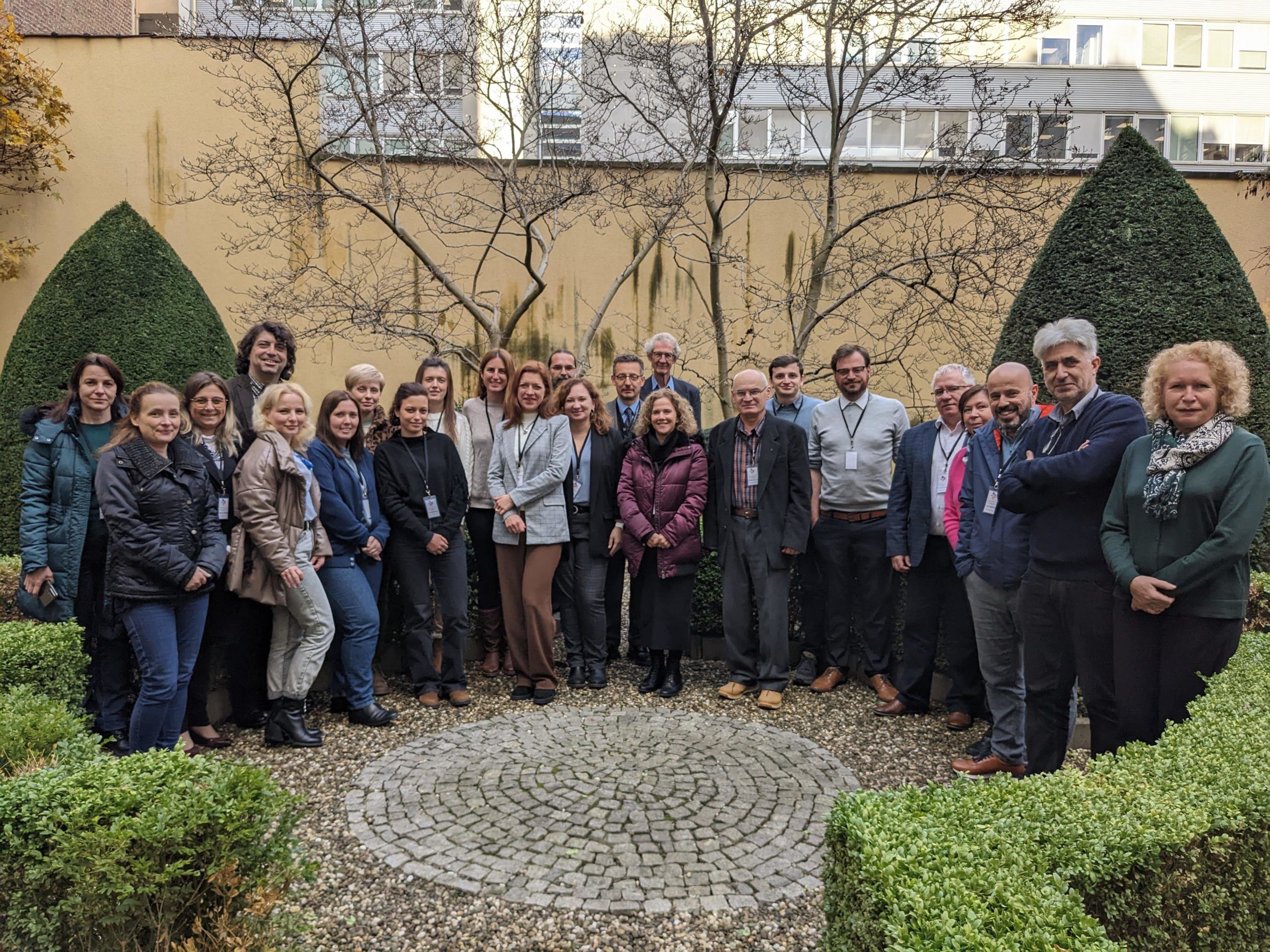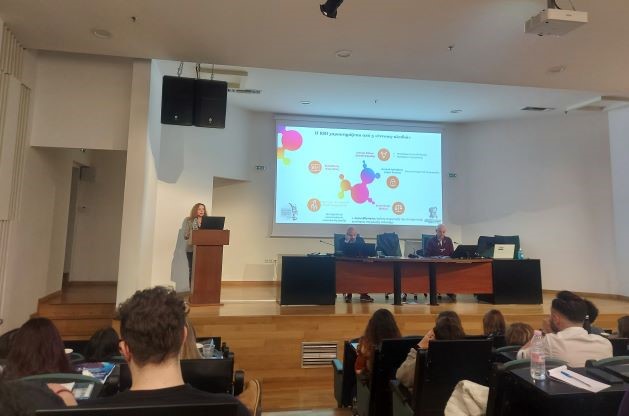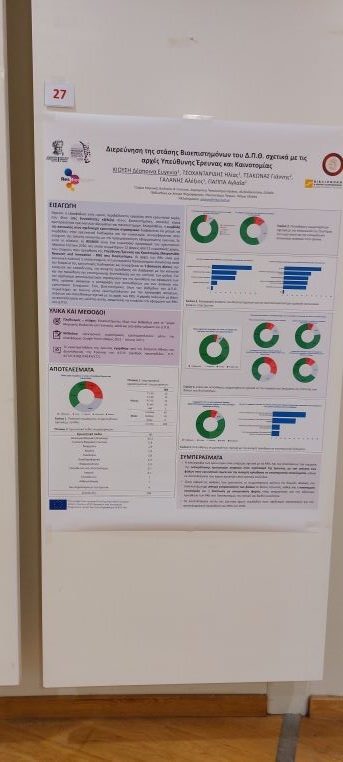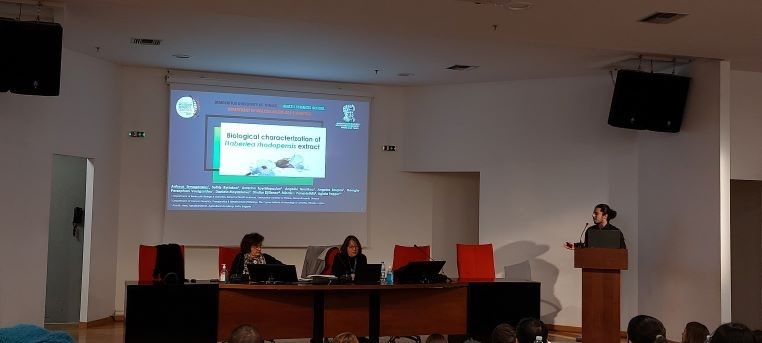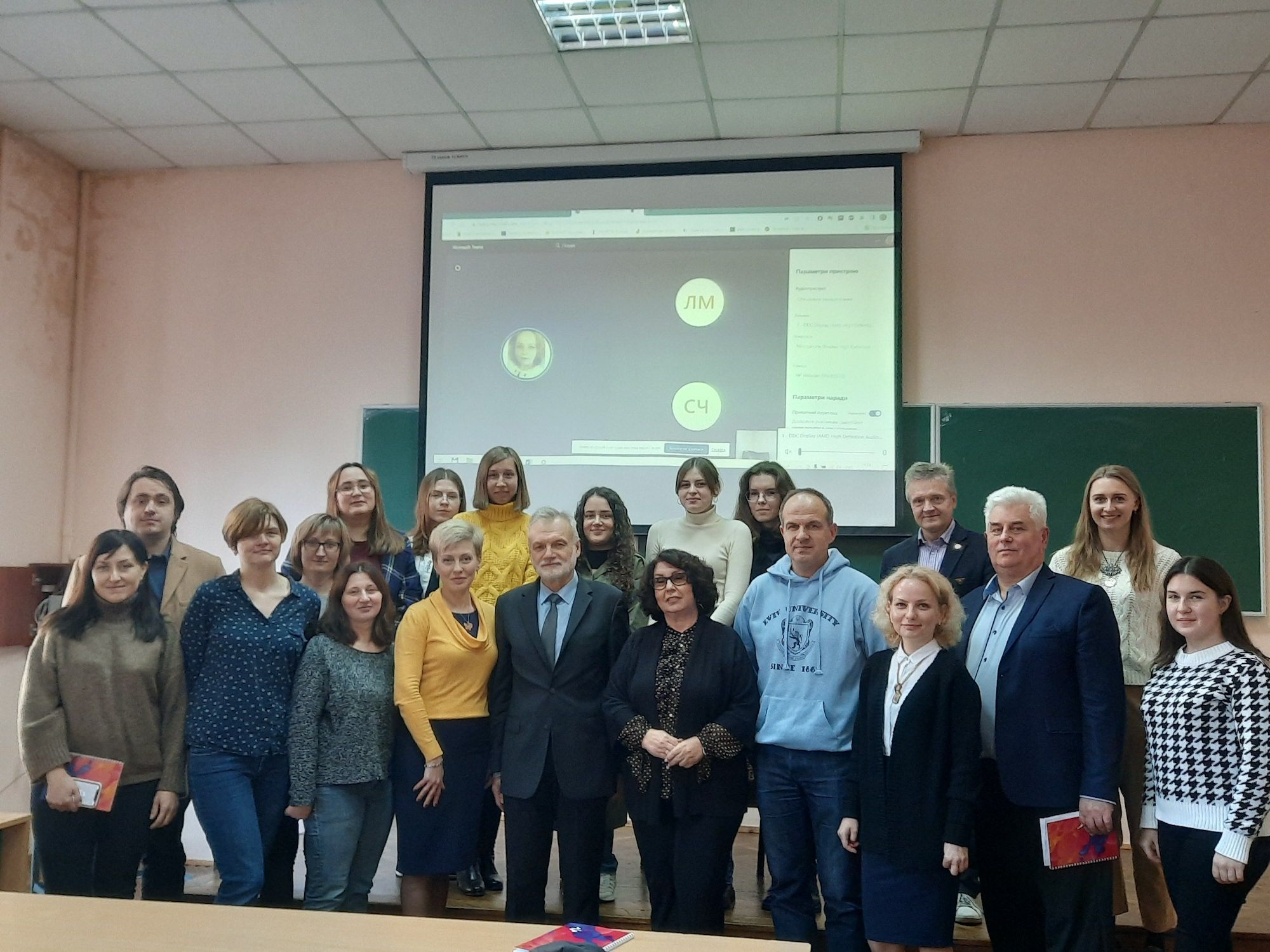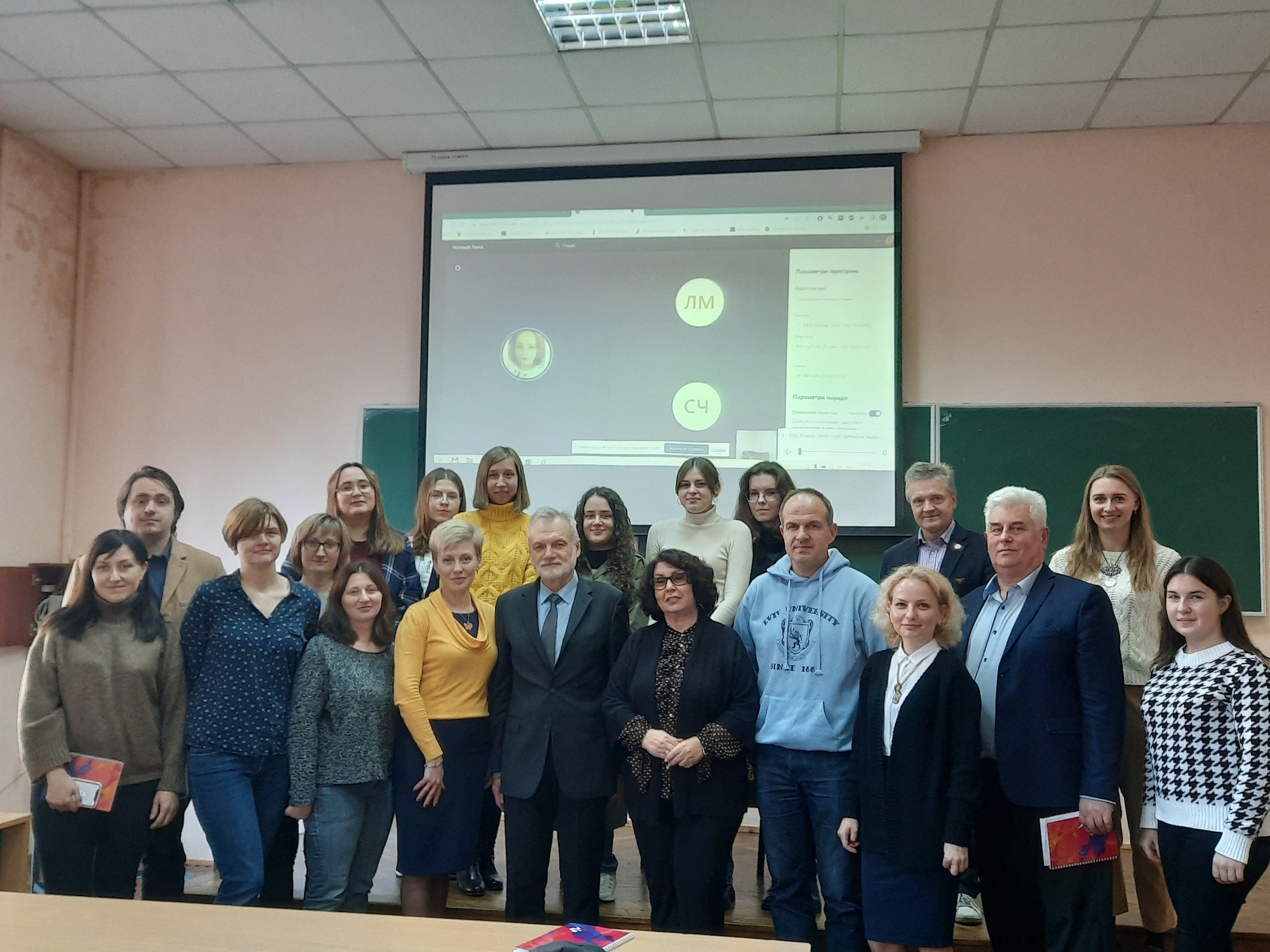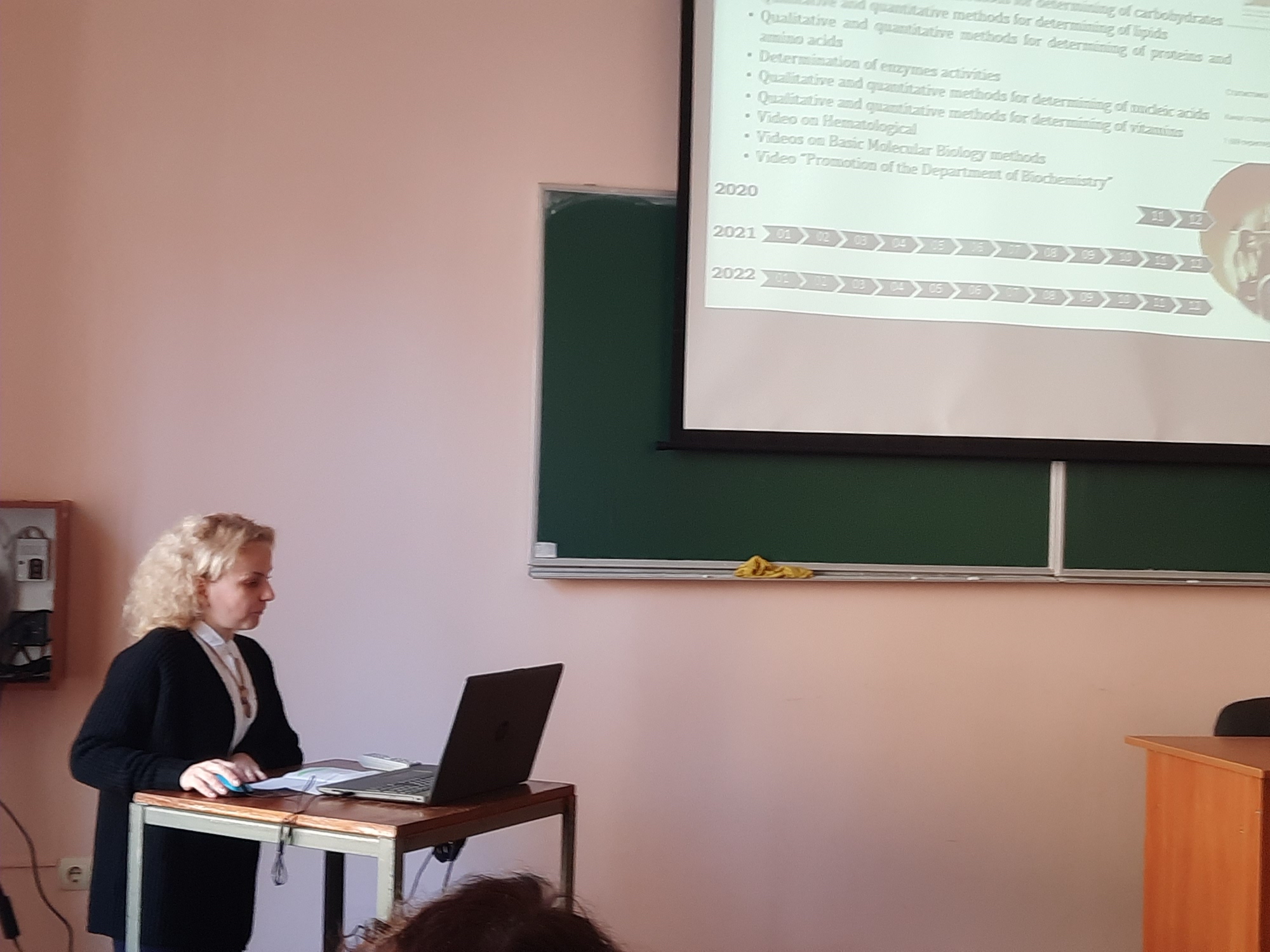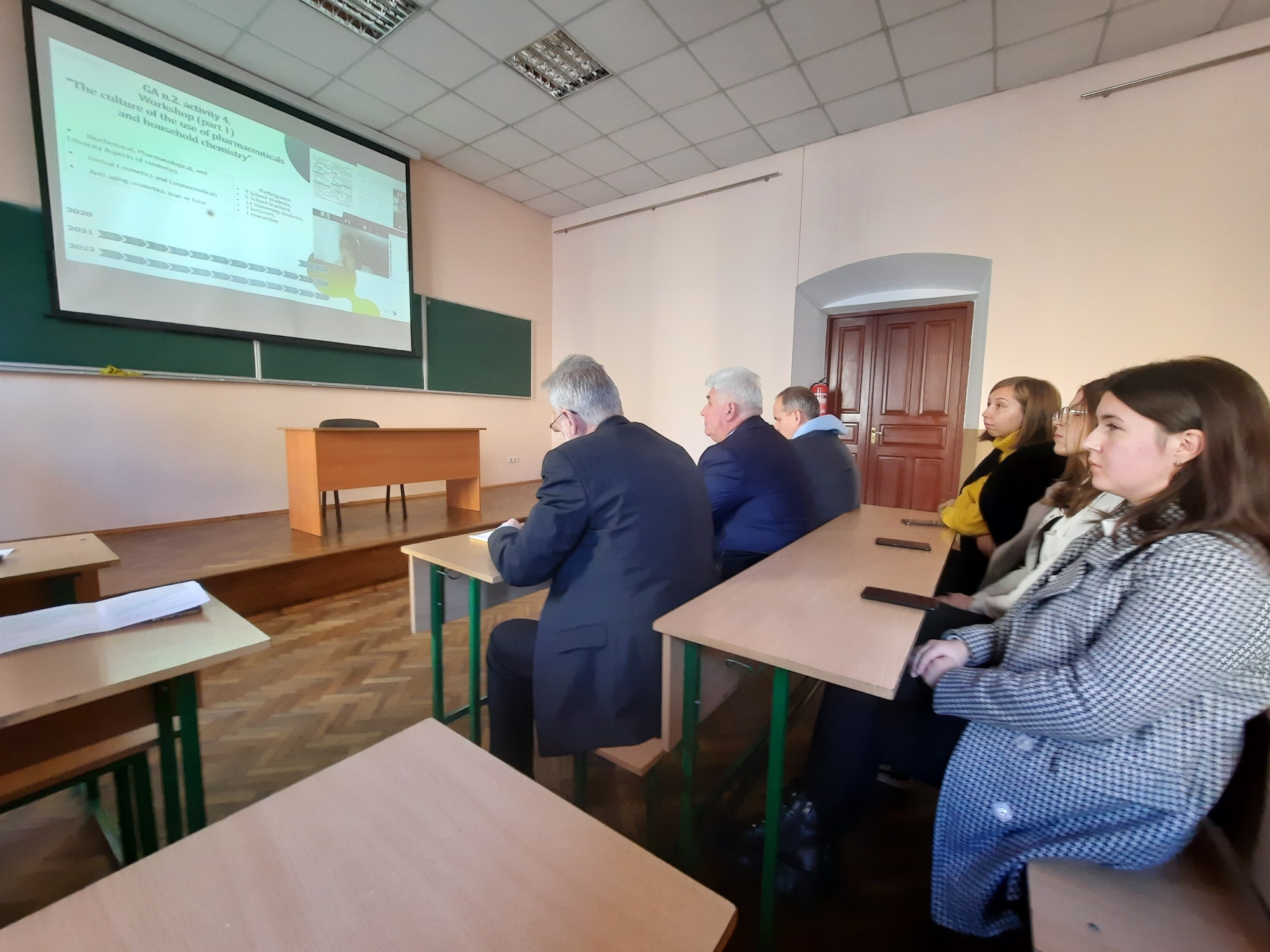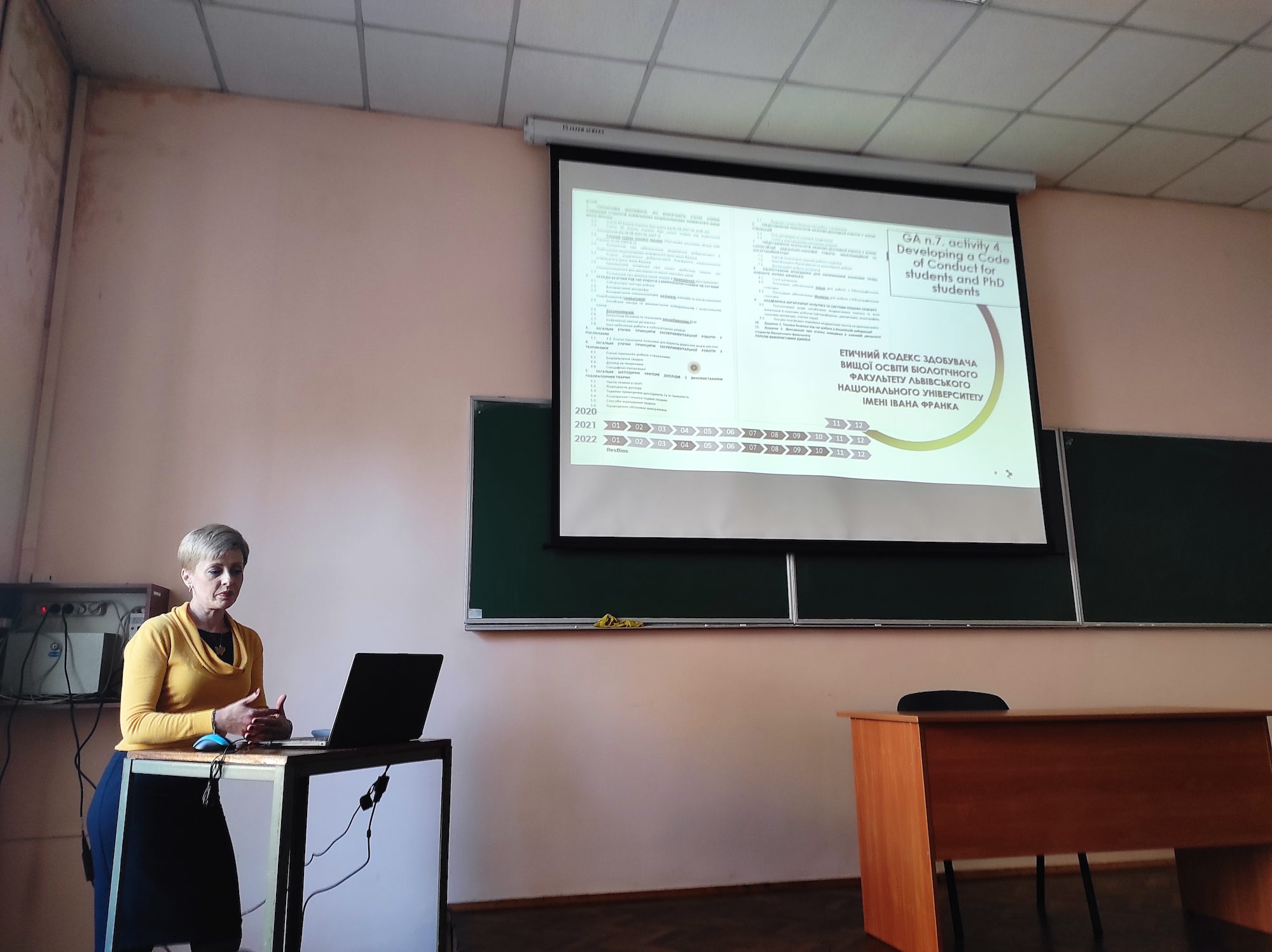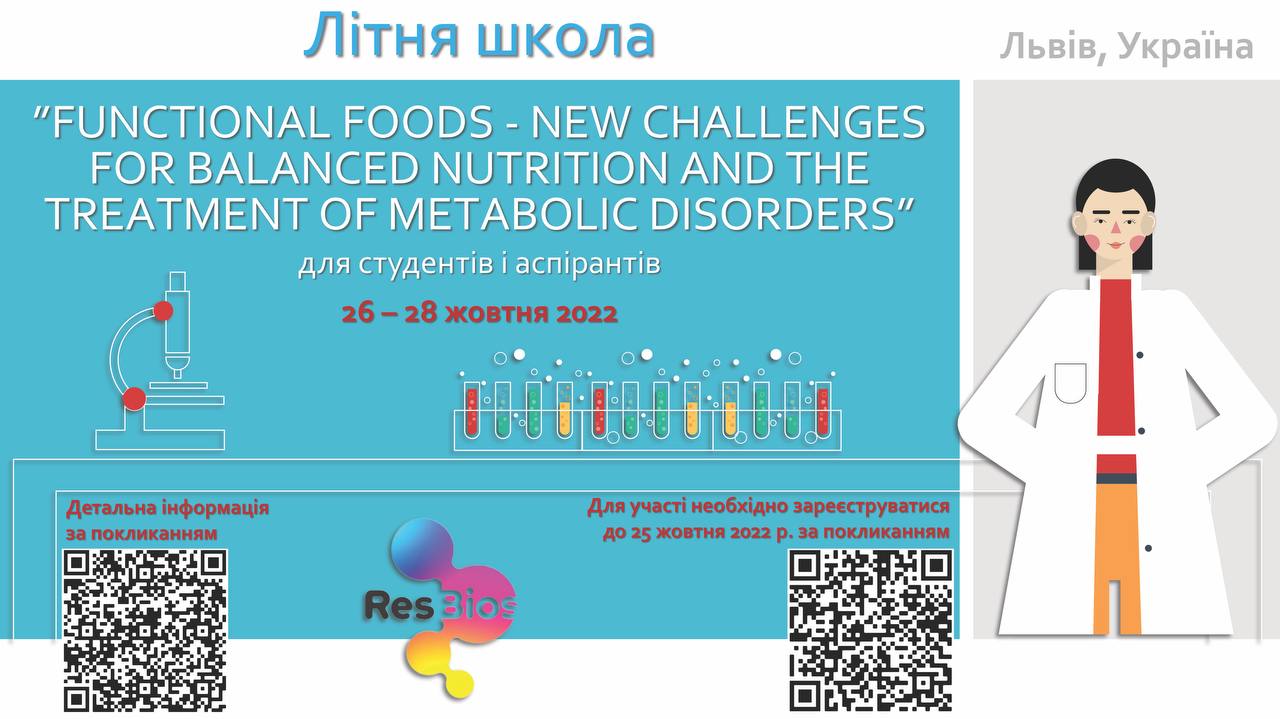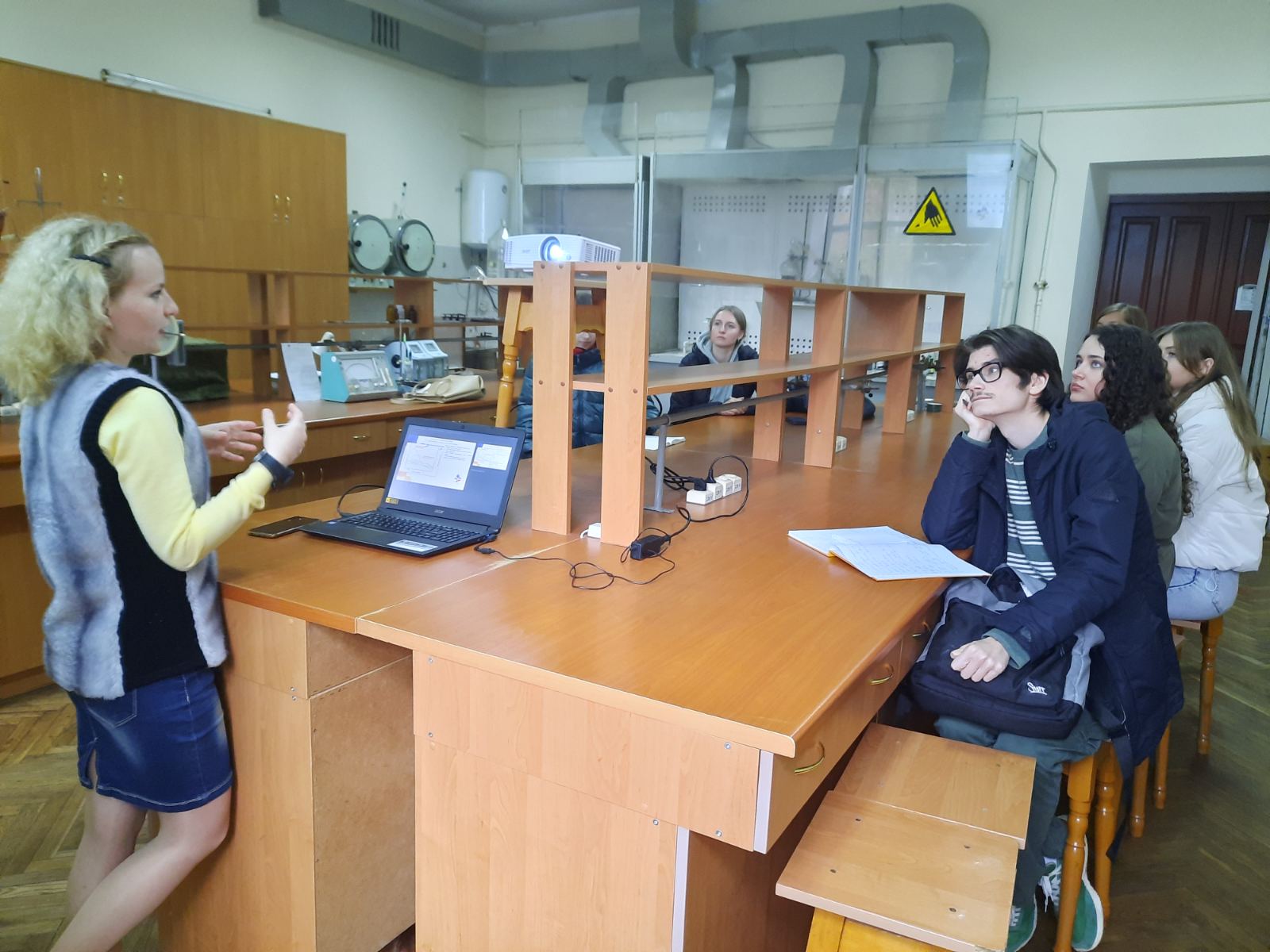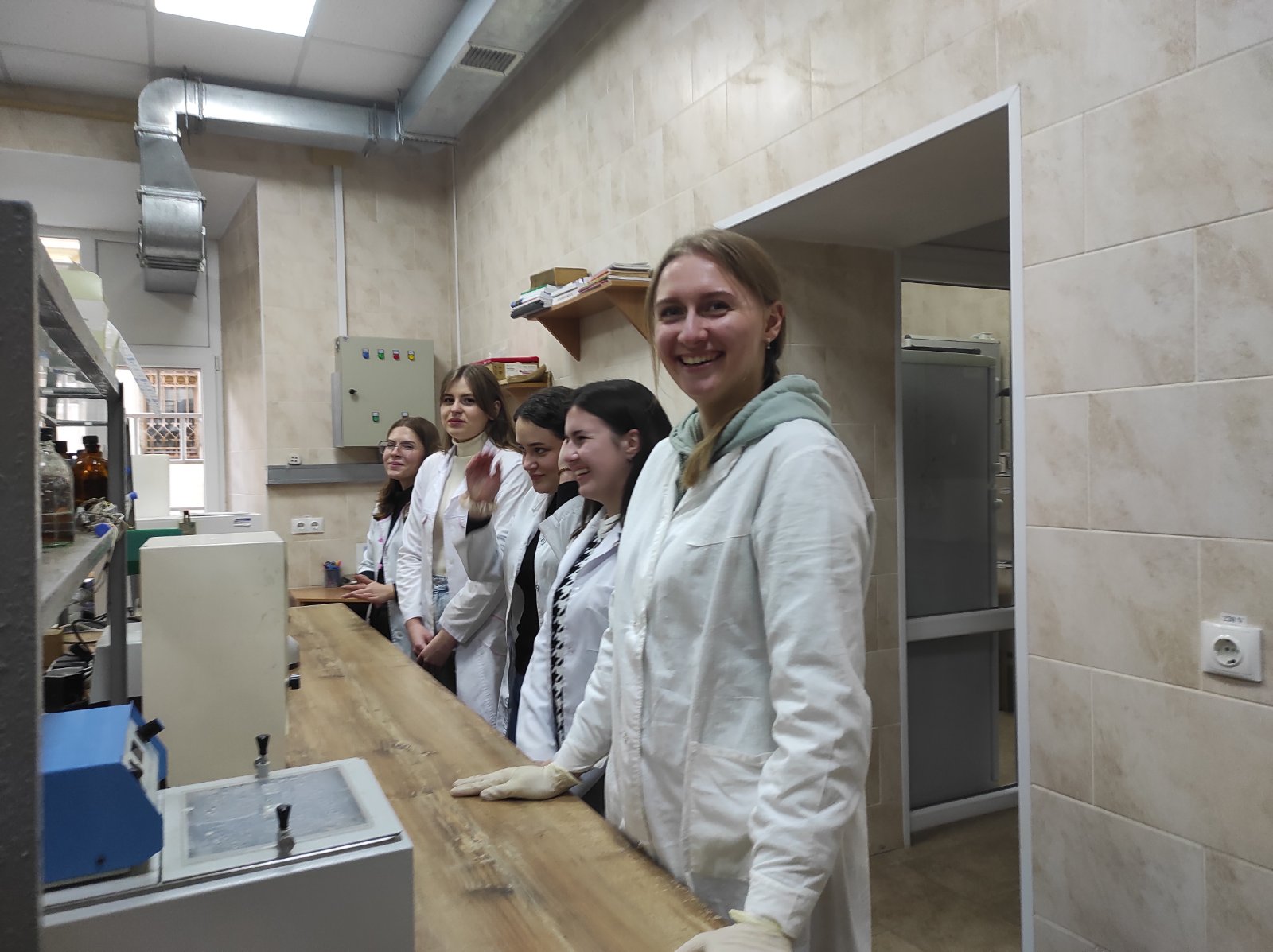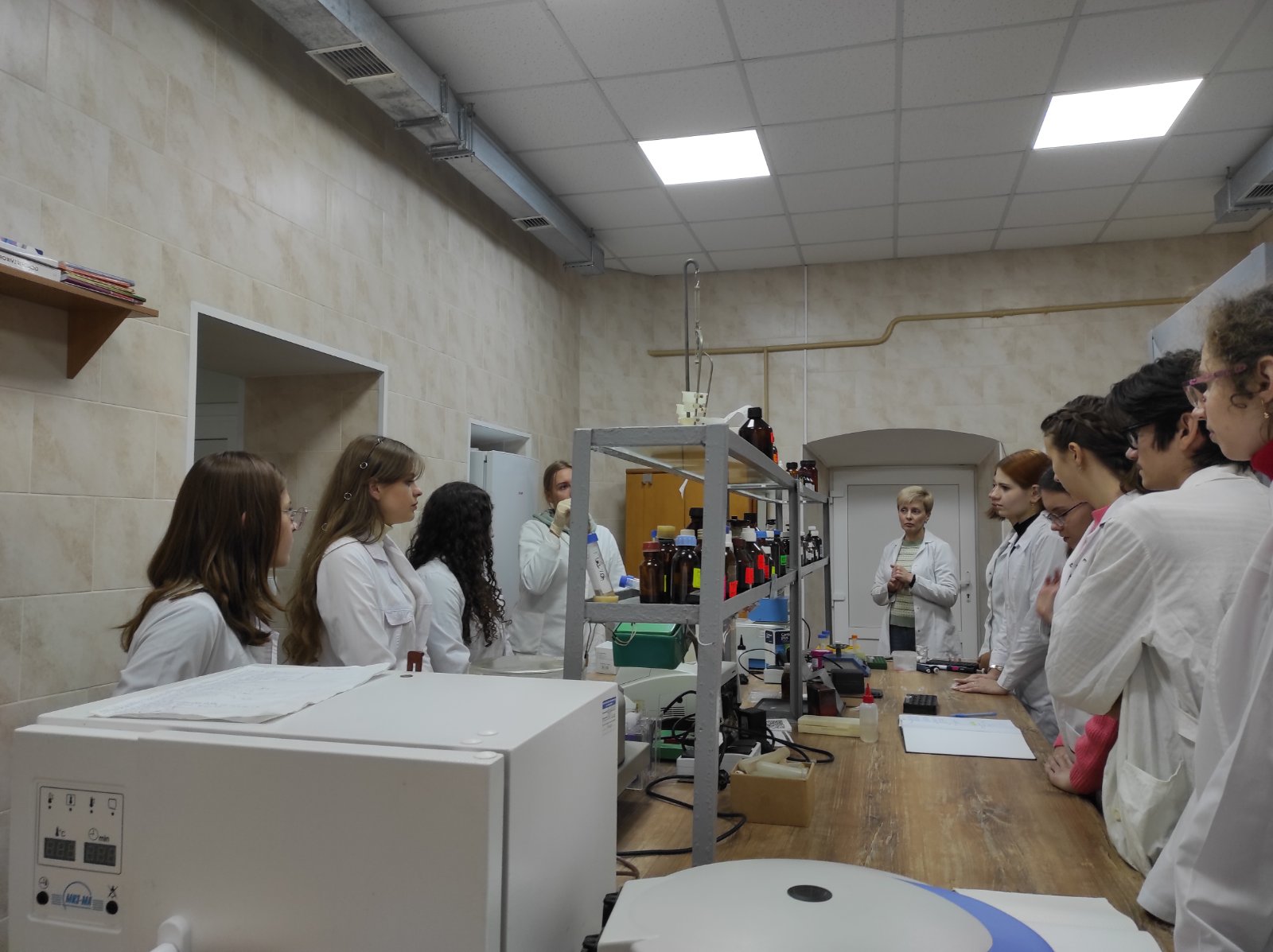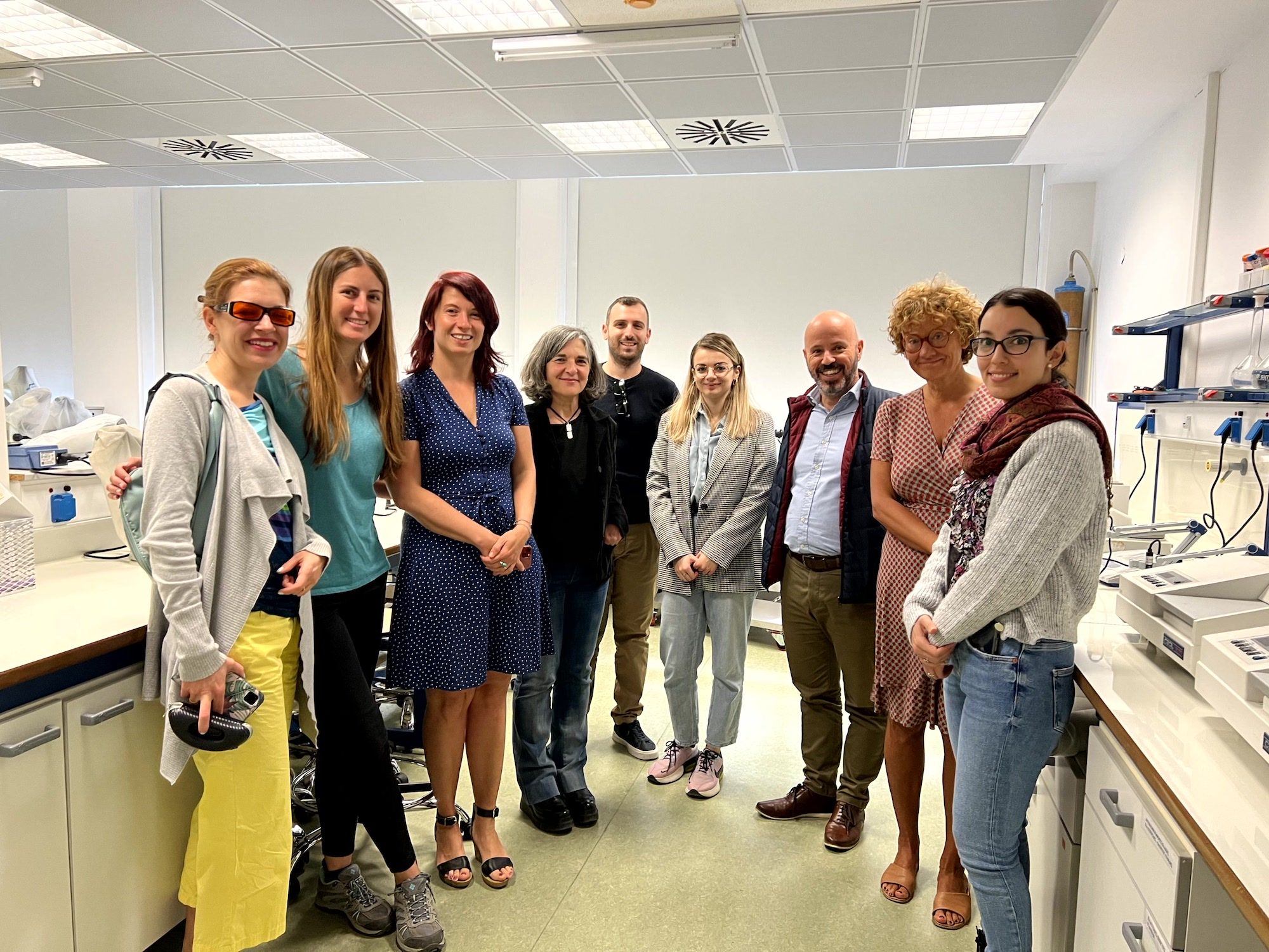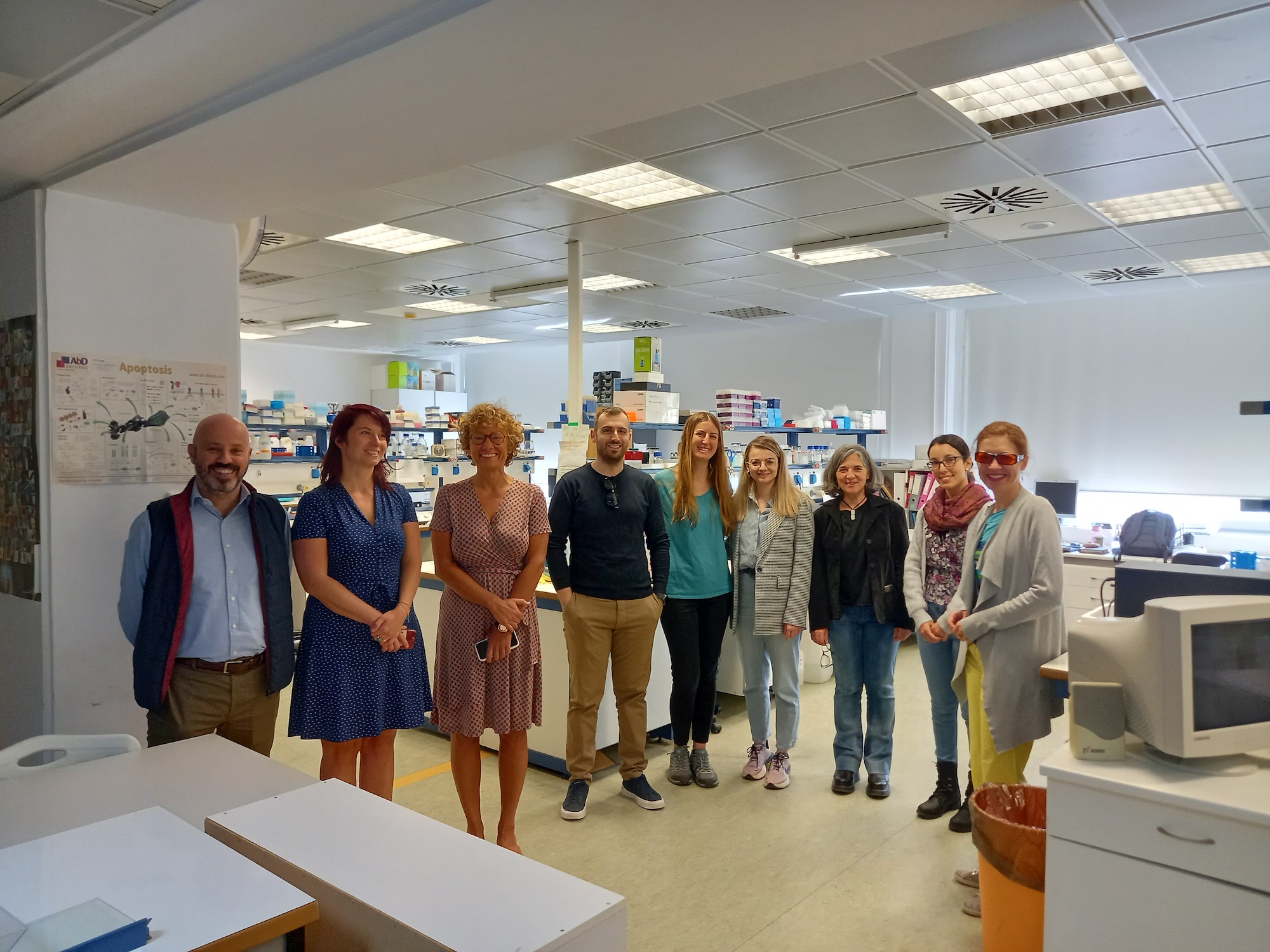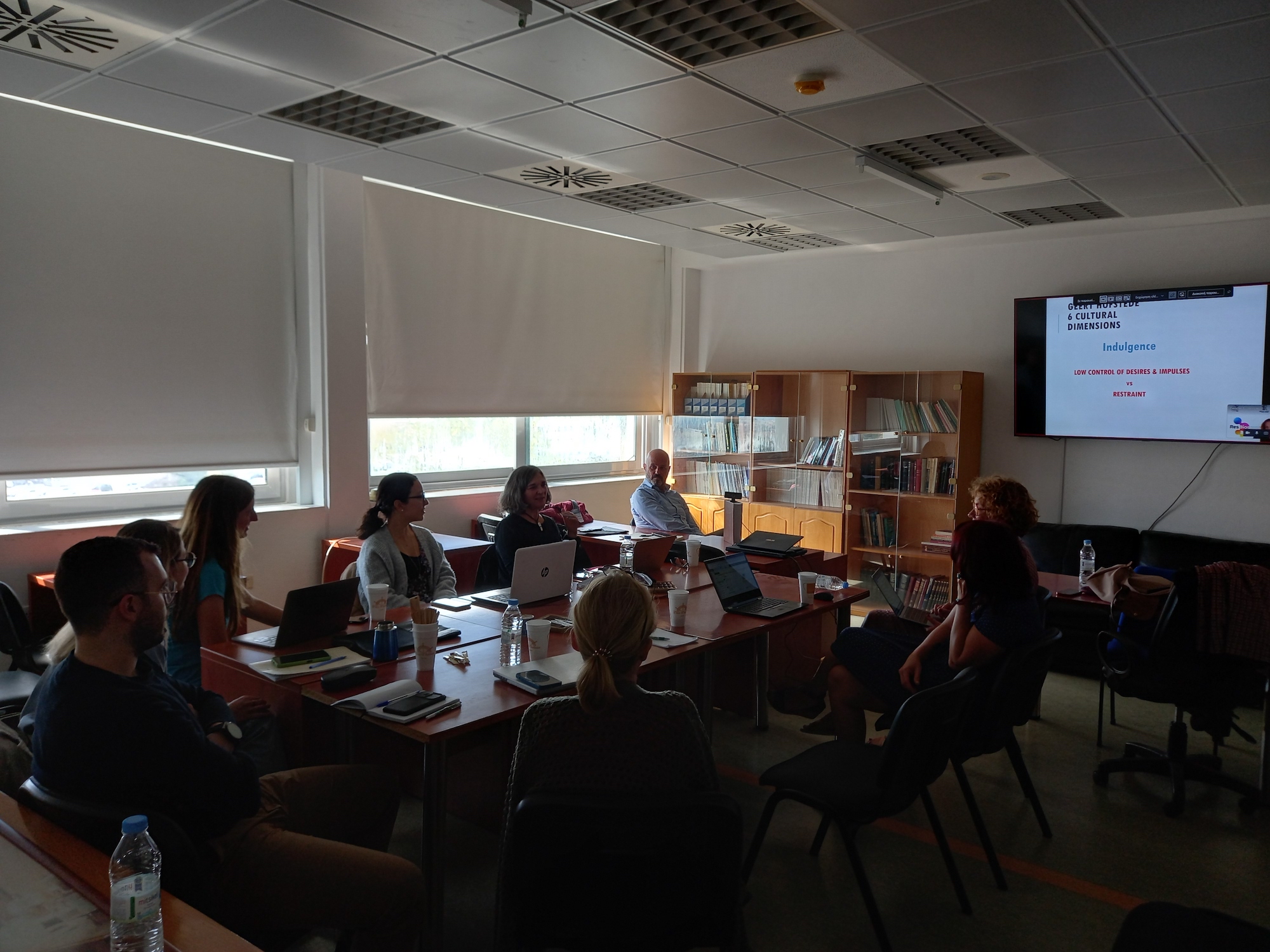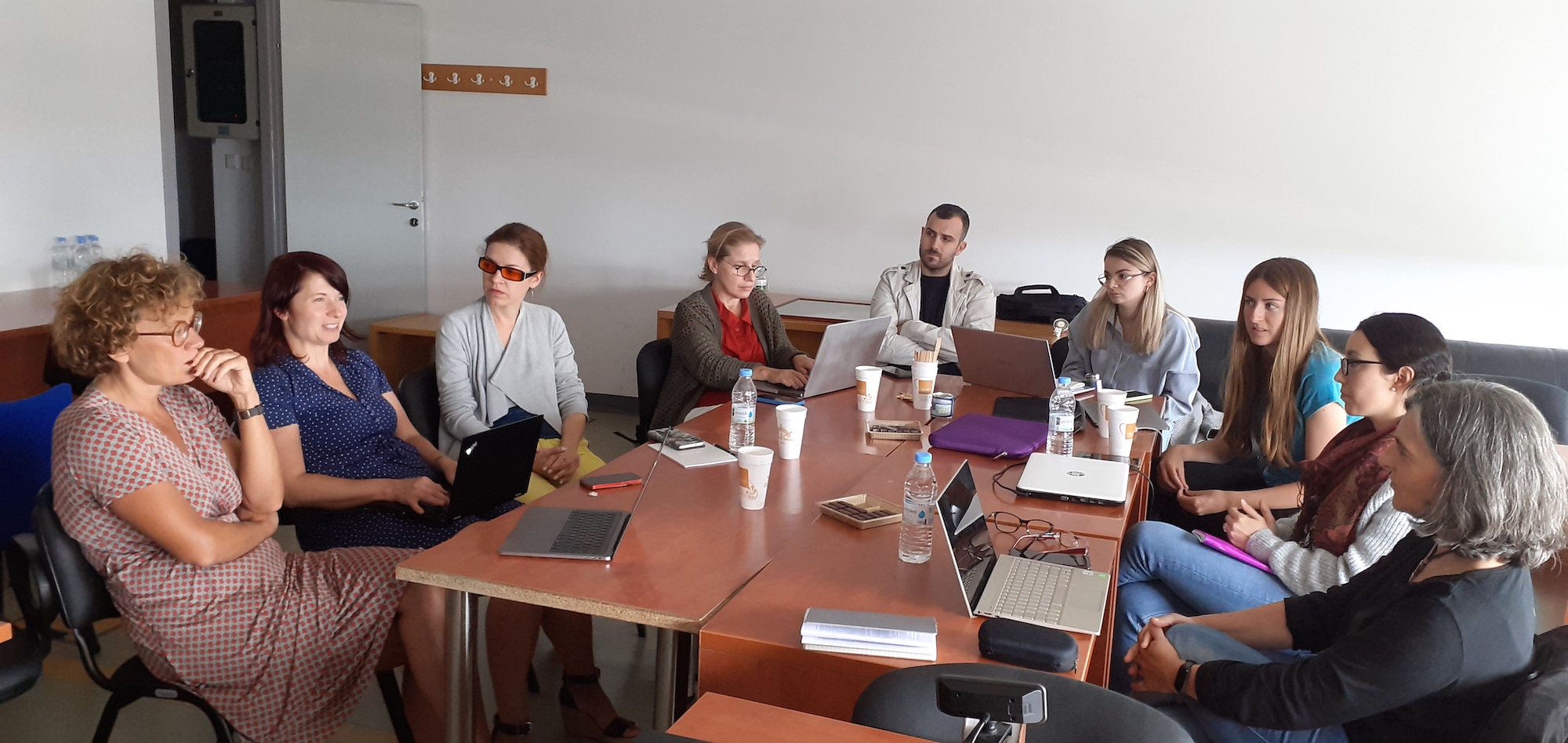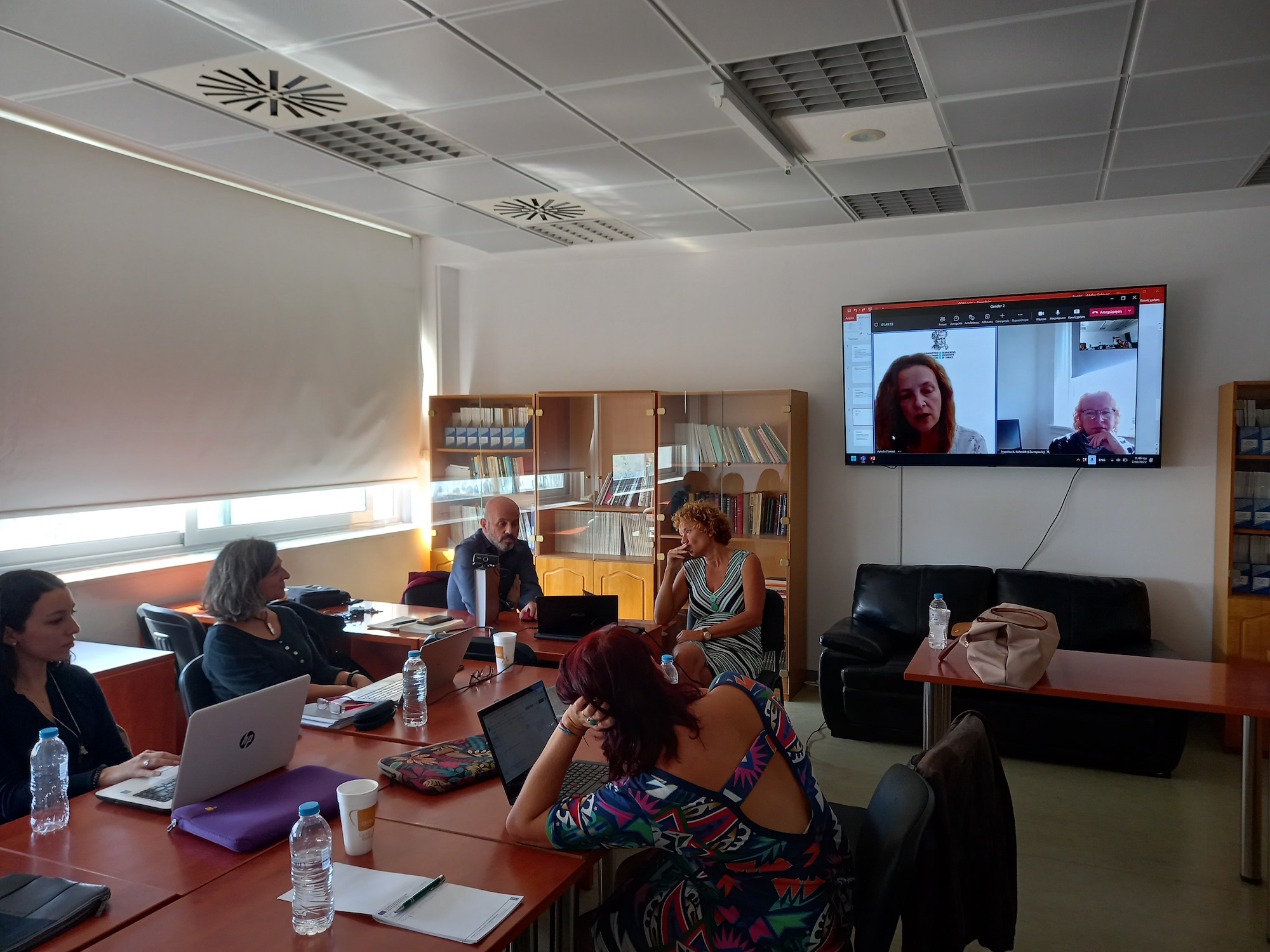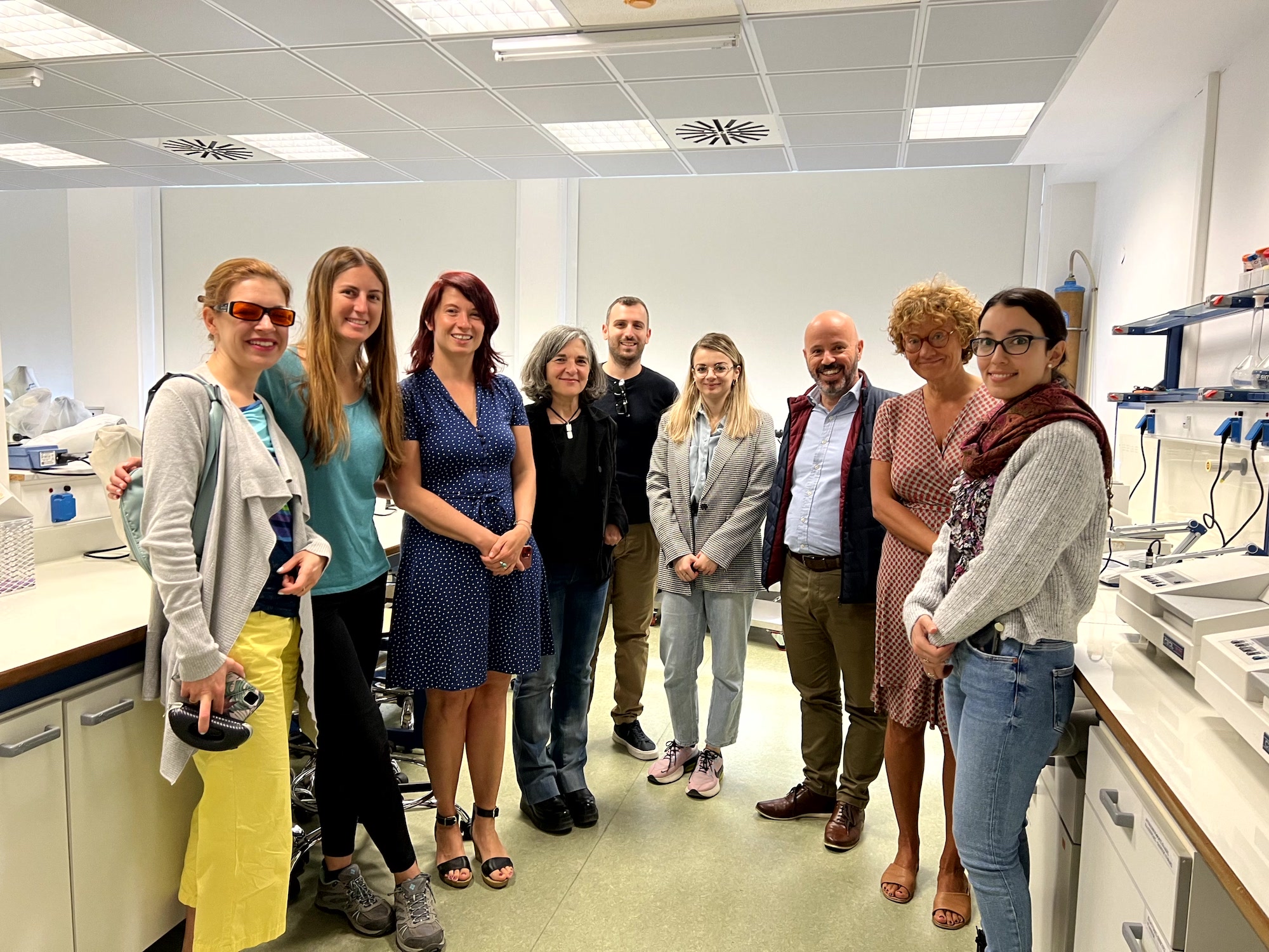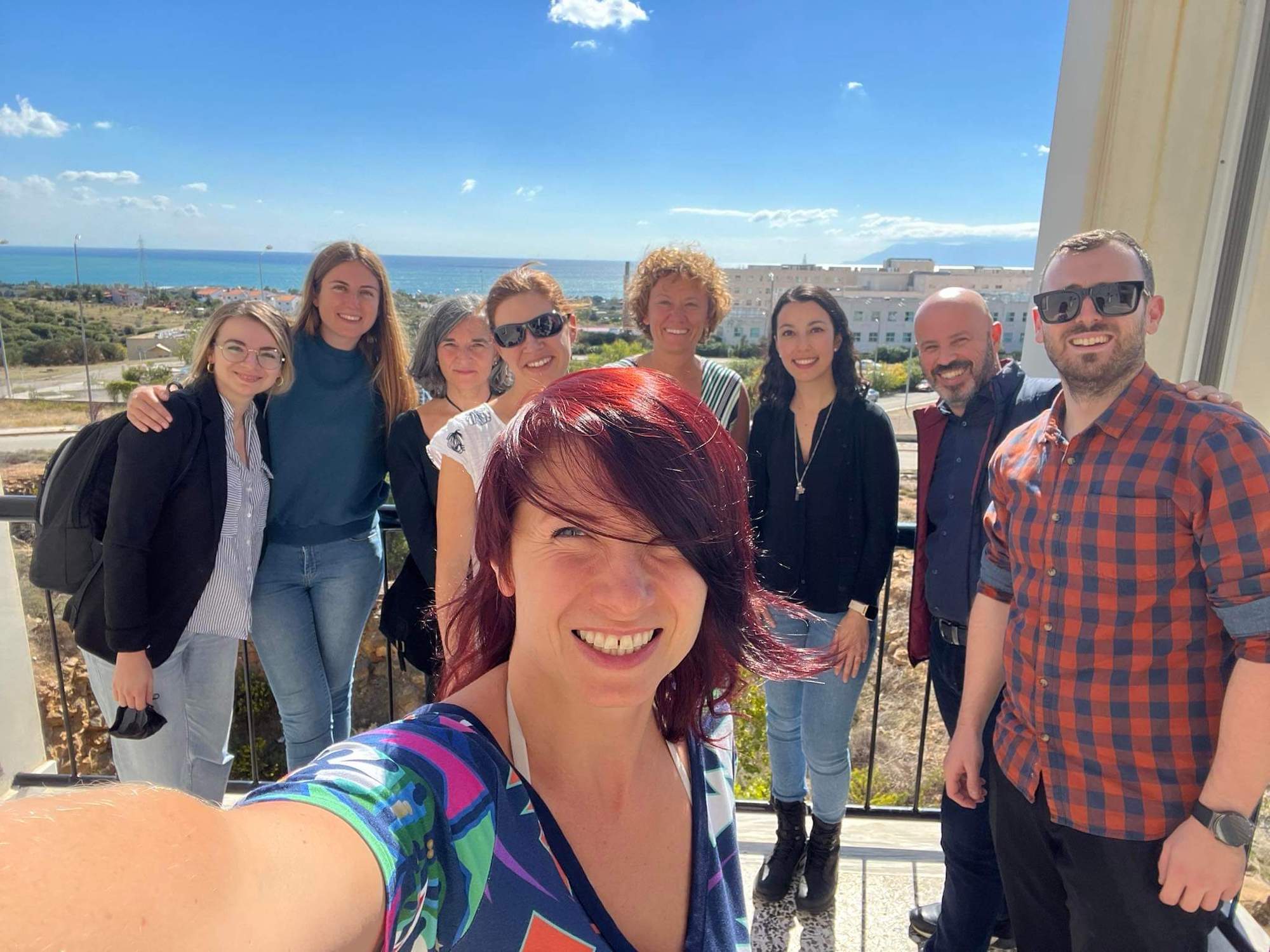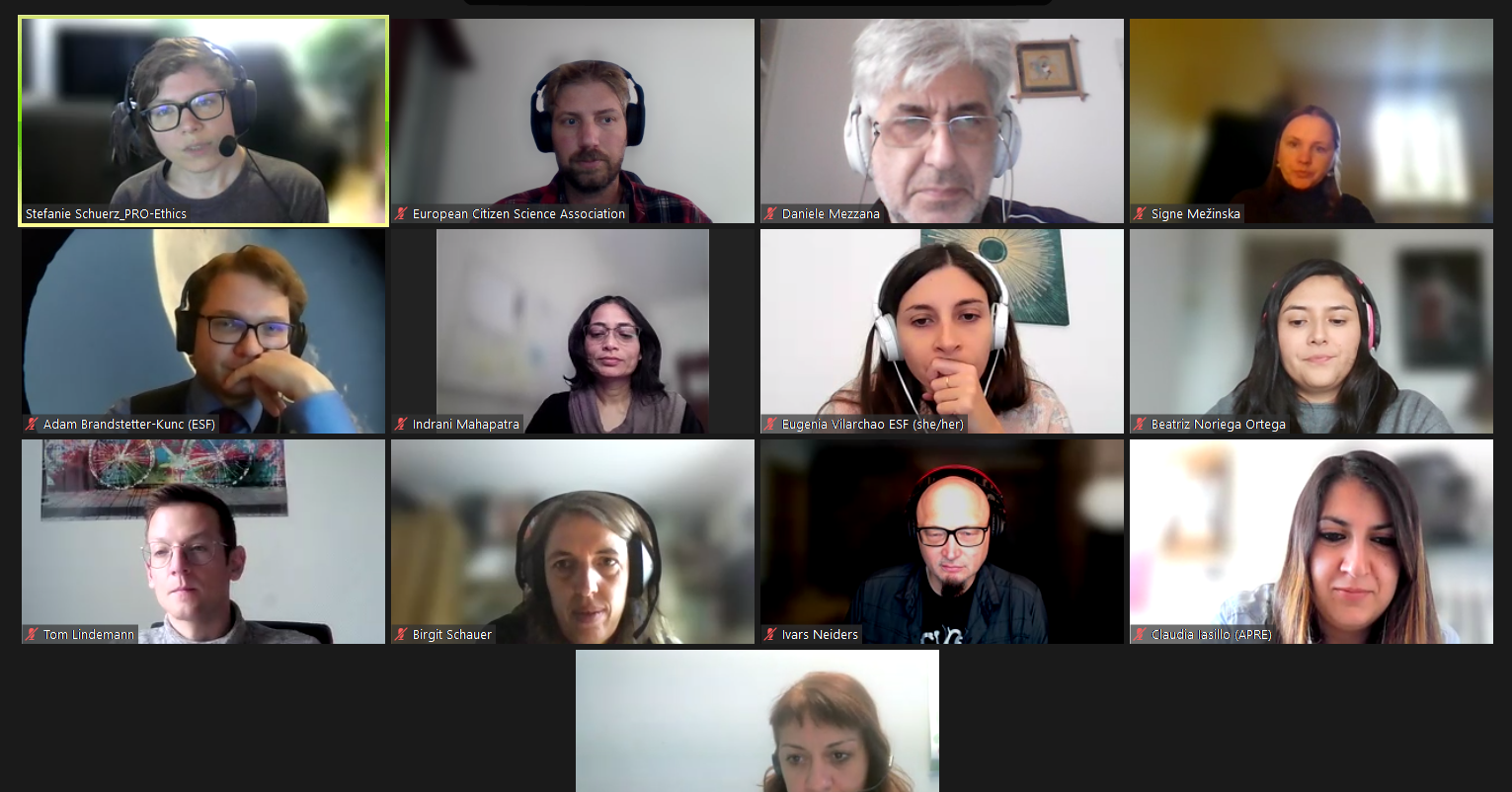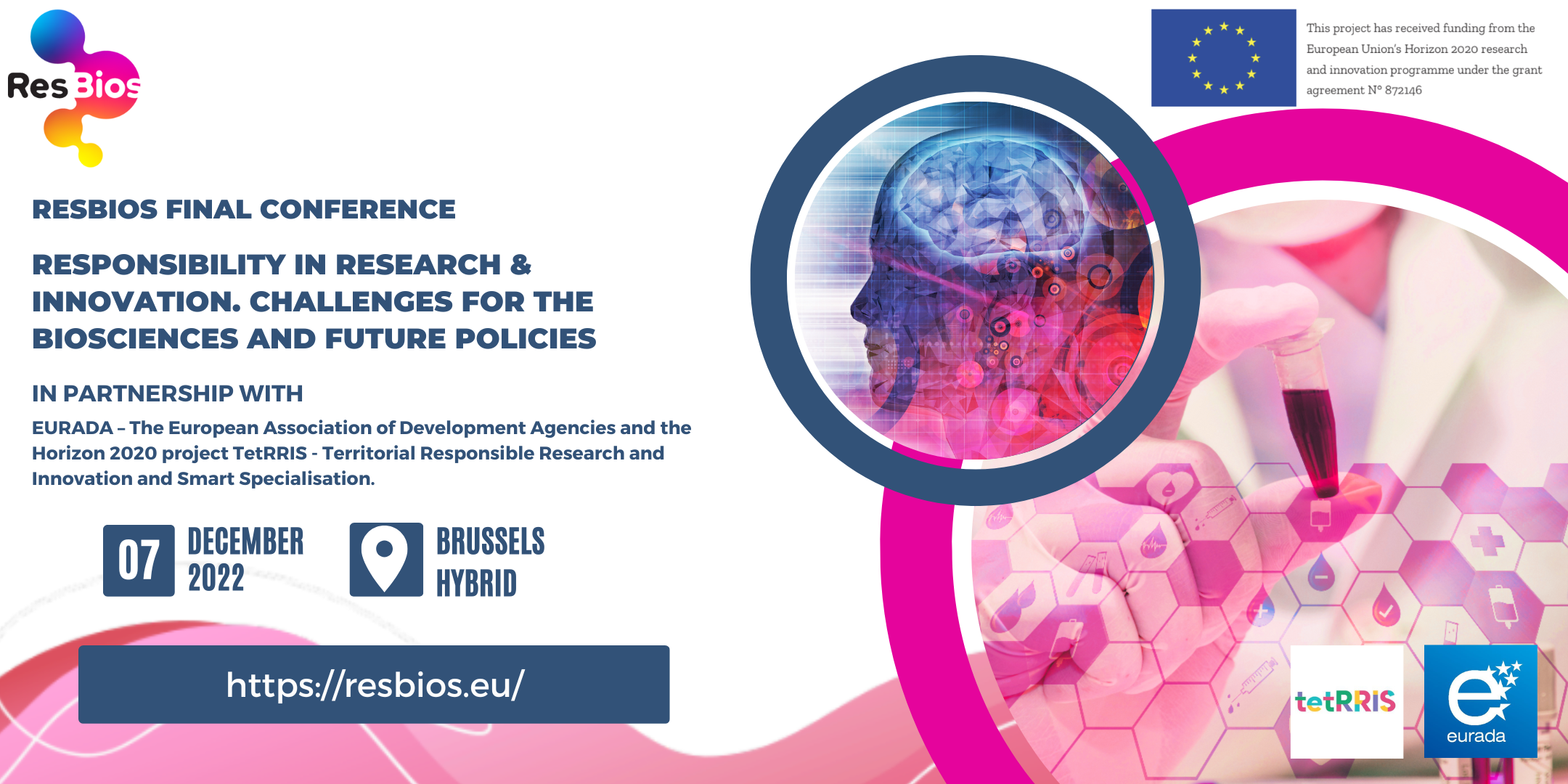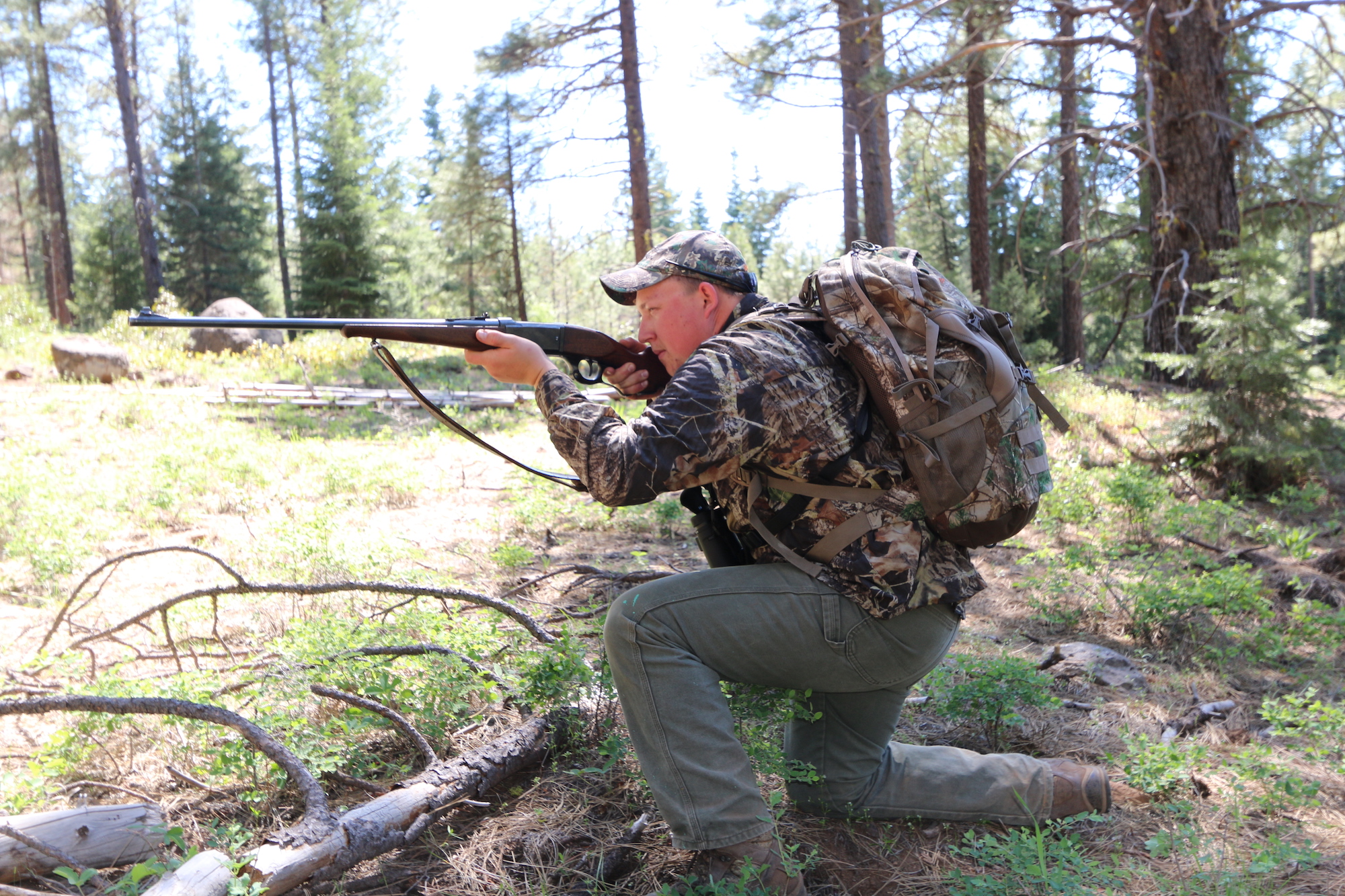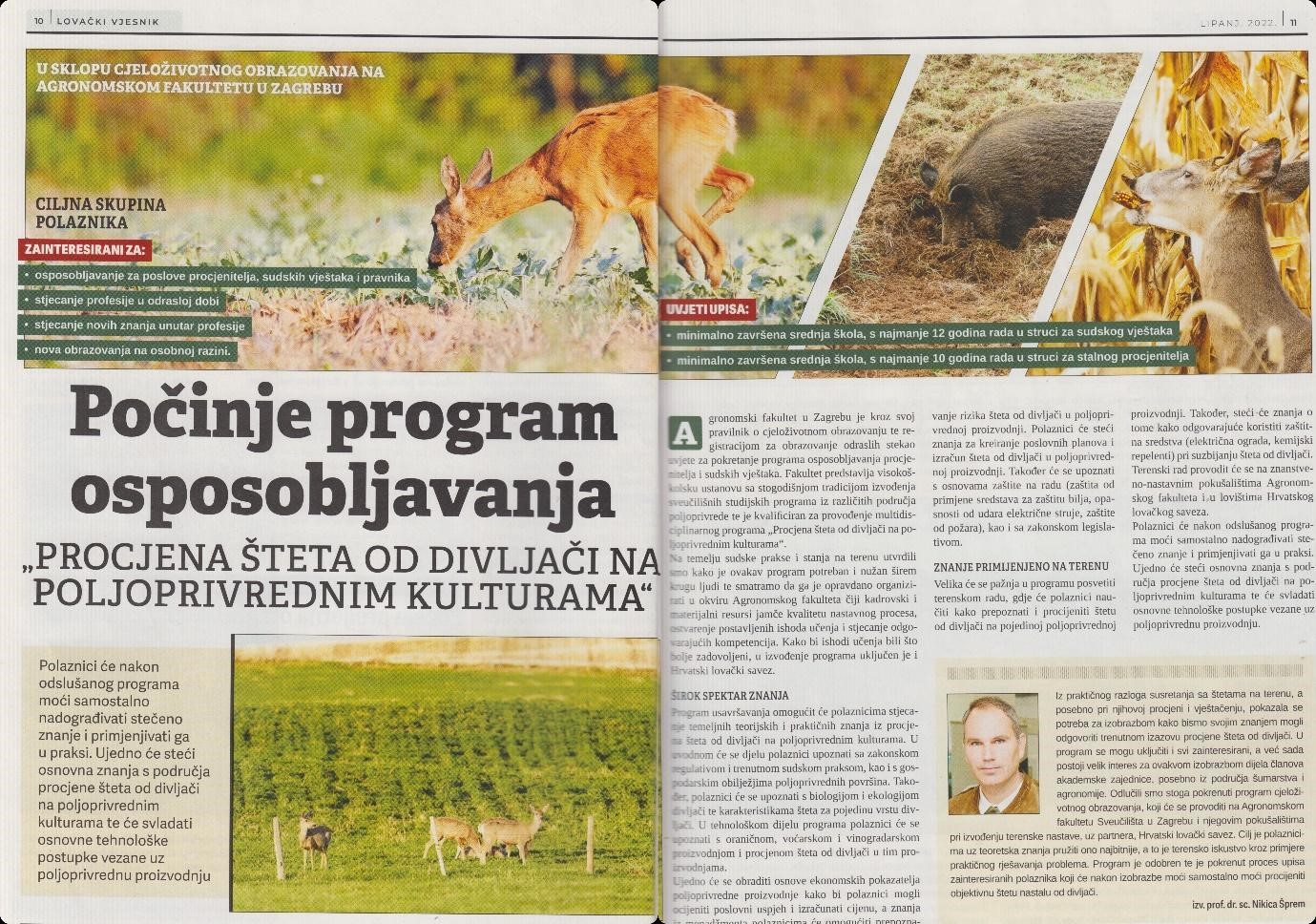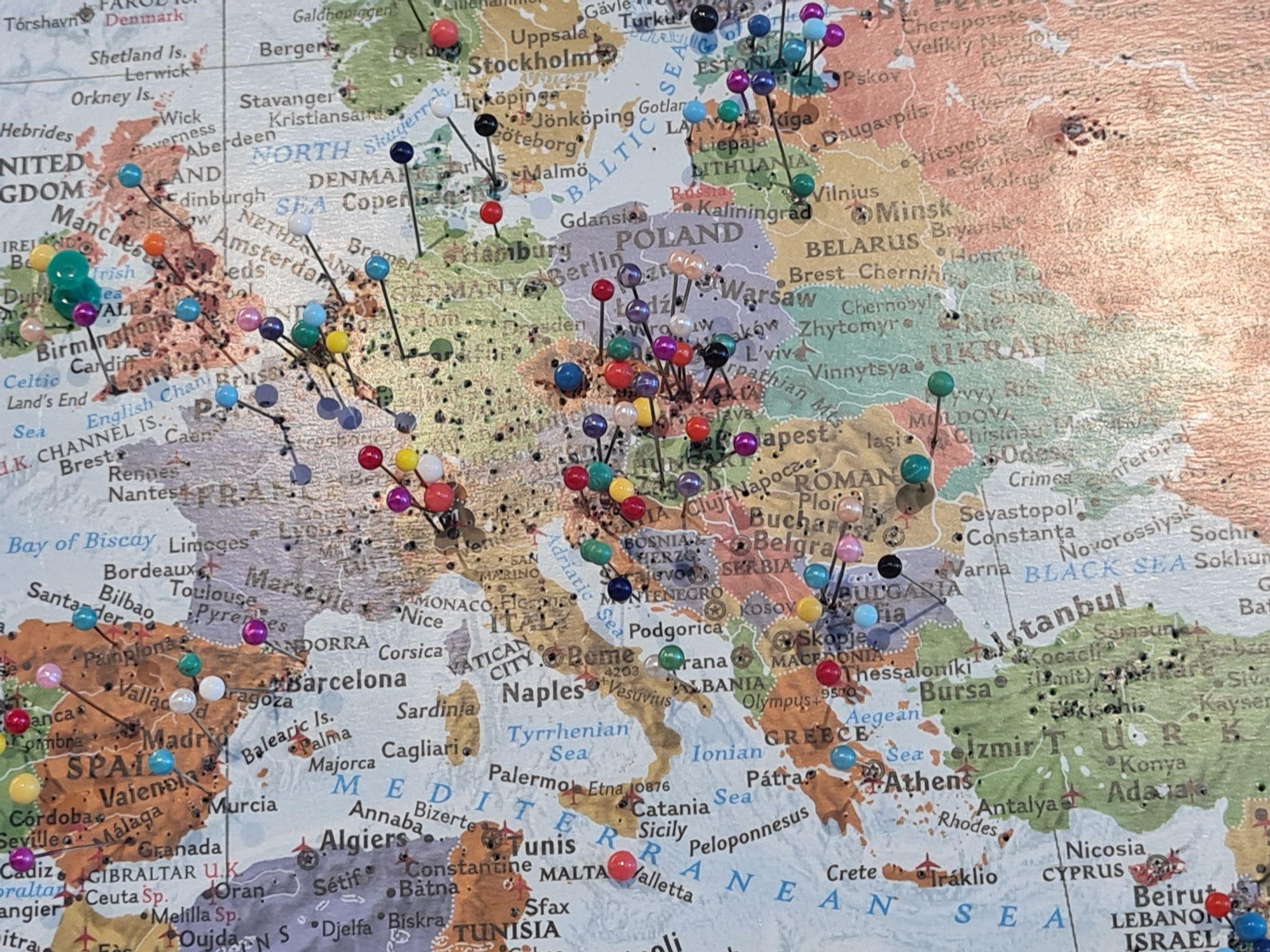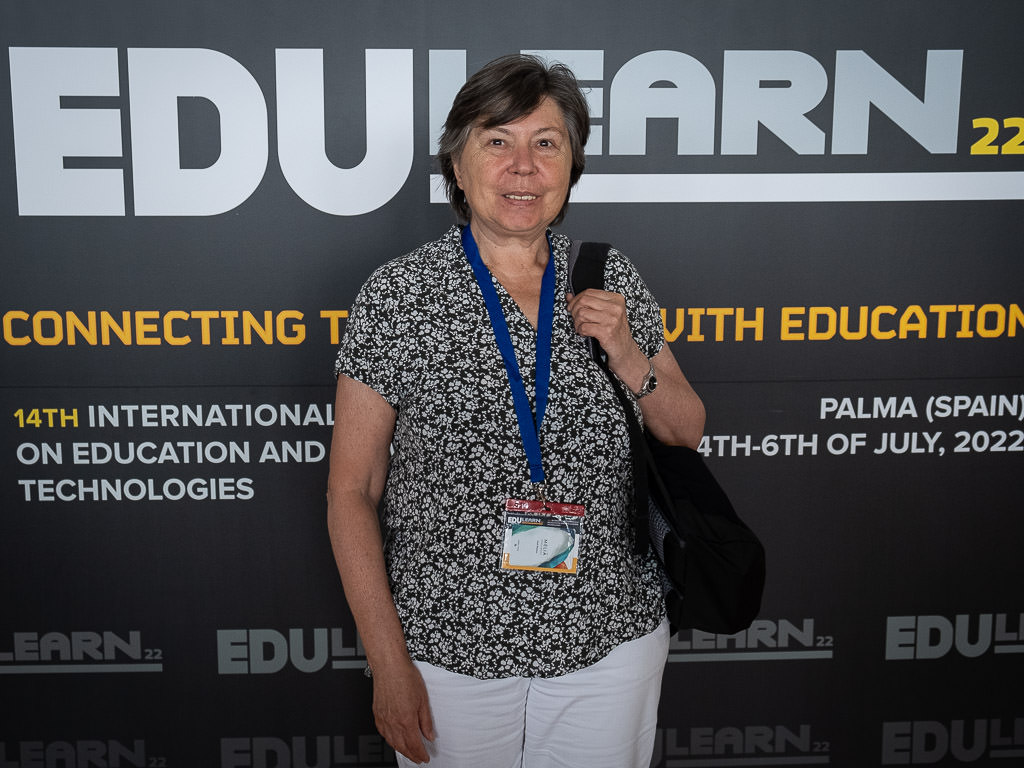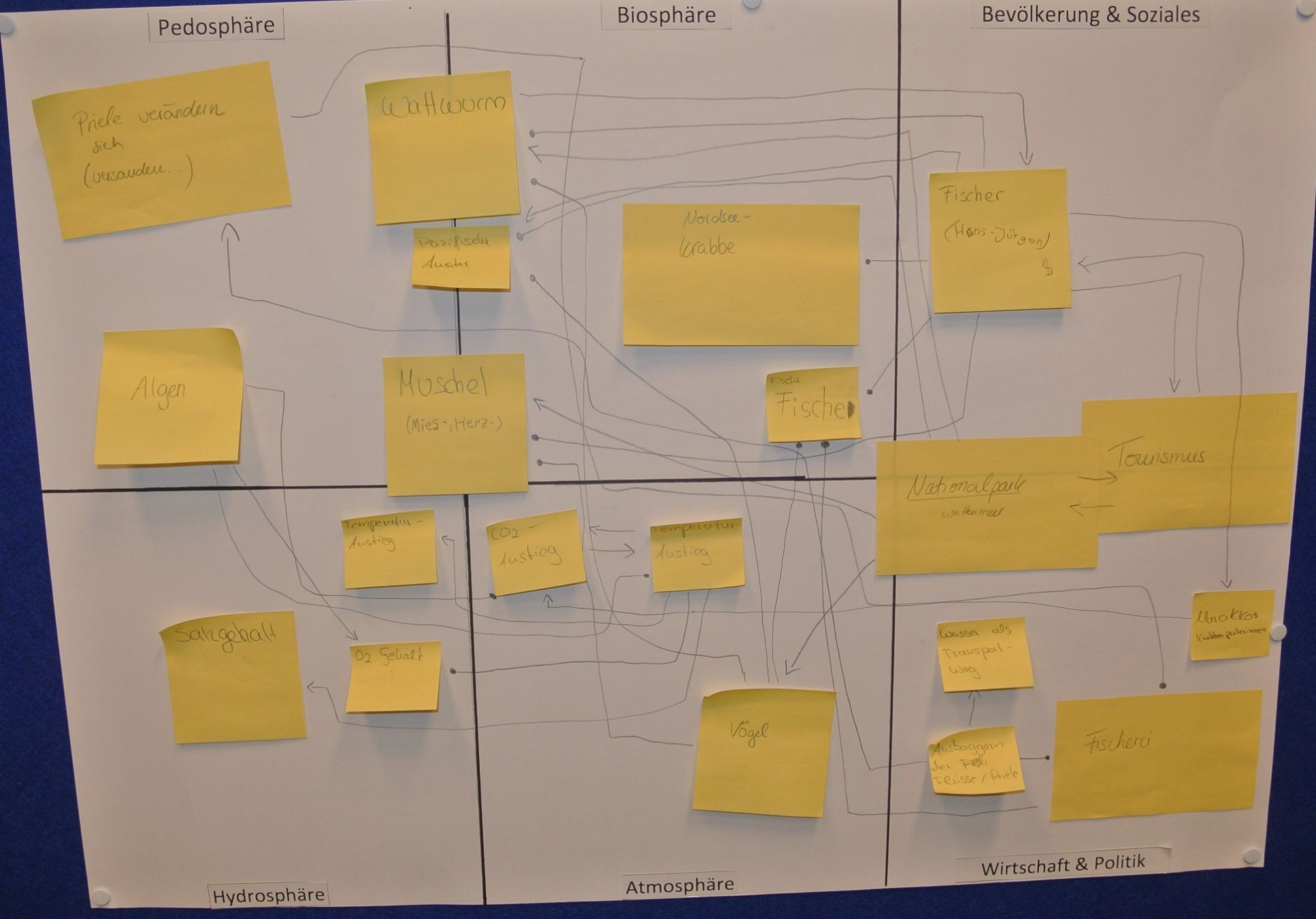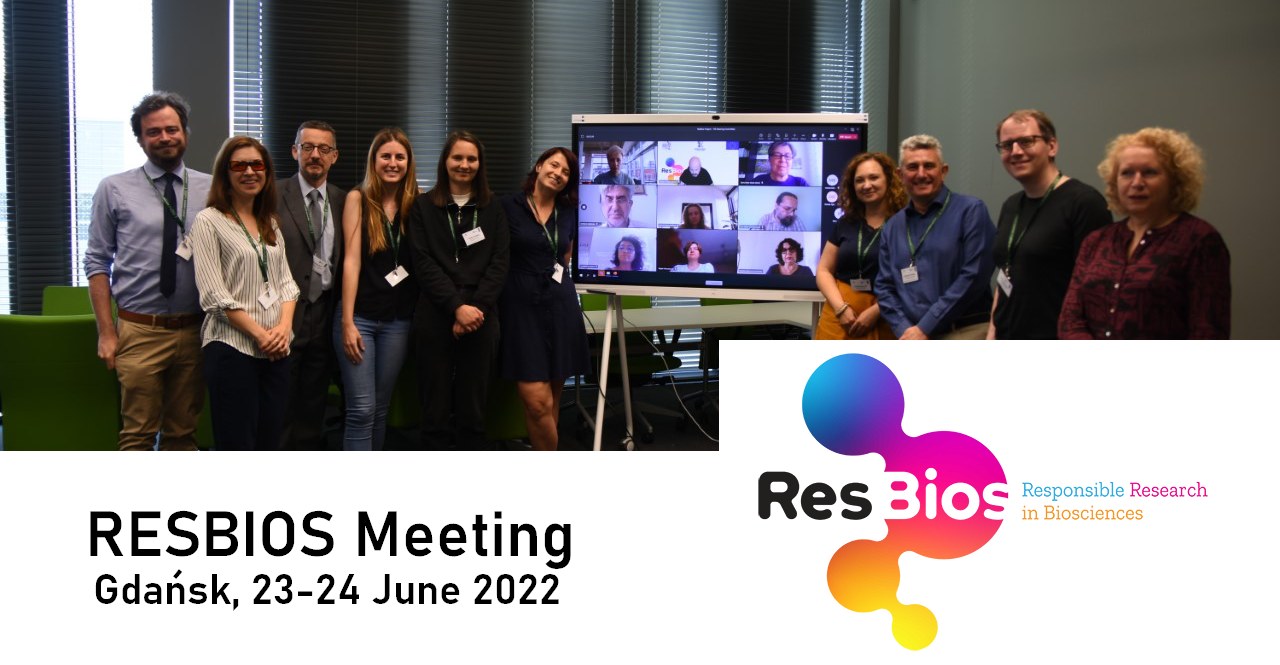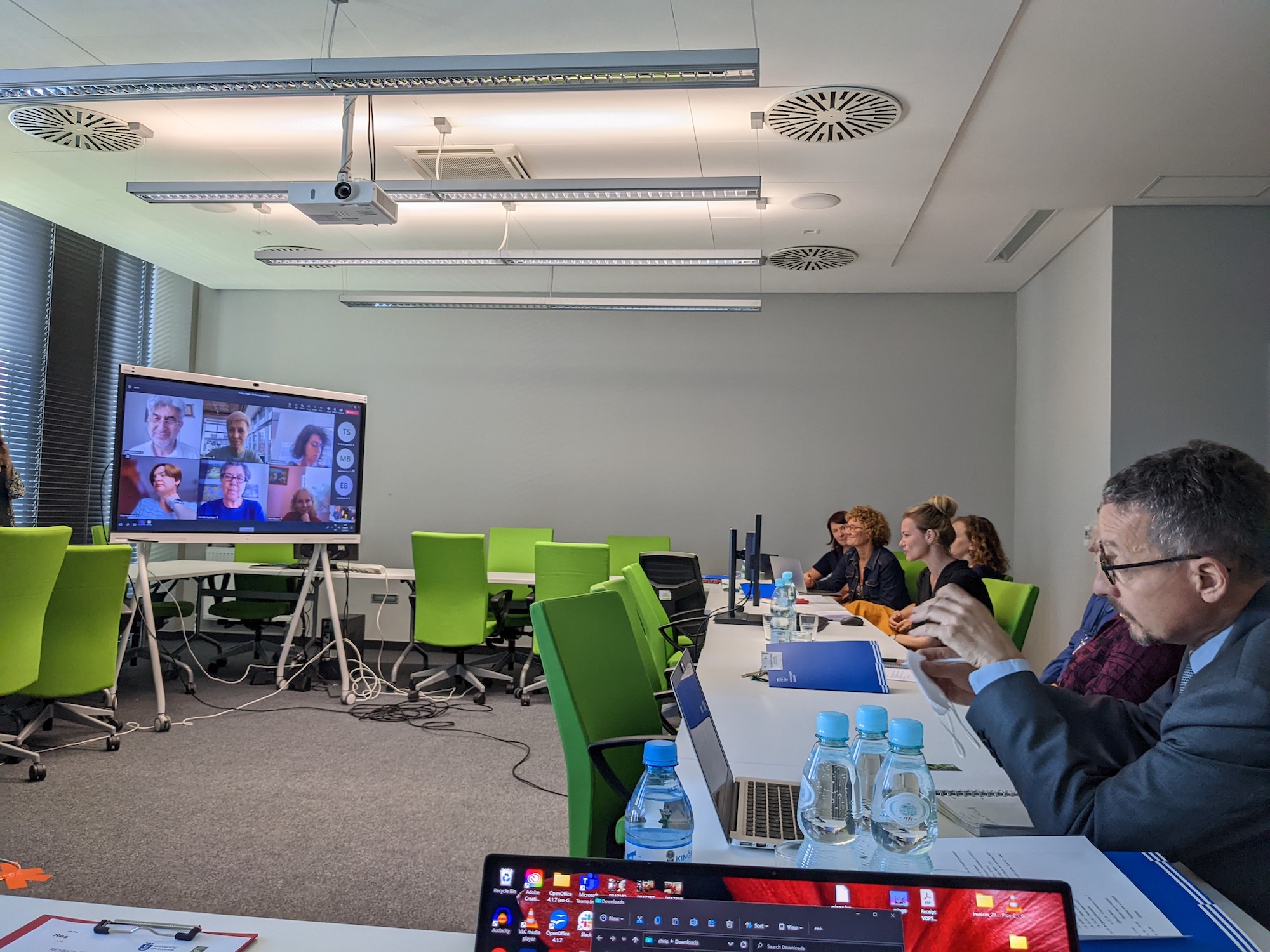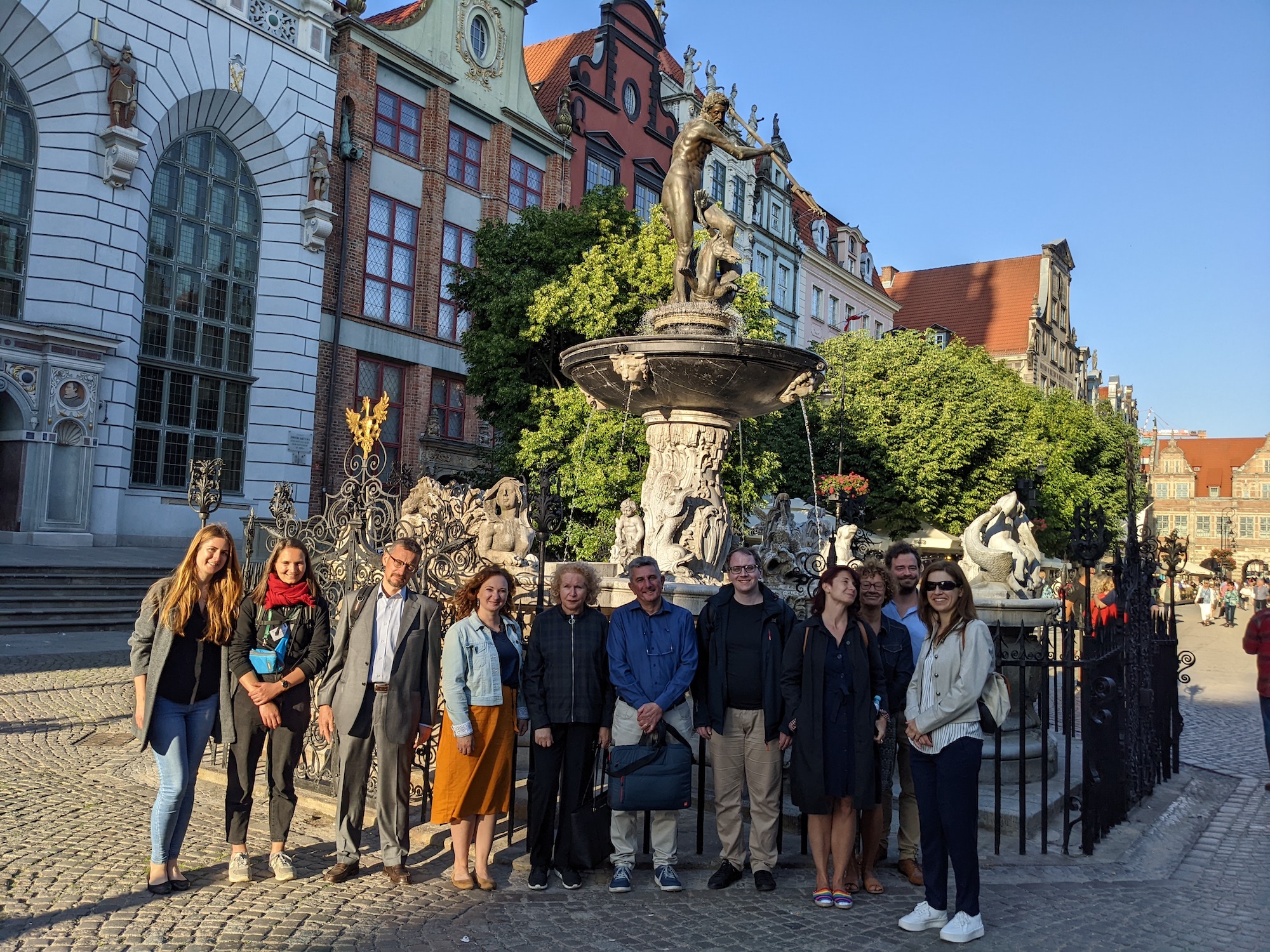The end of the road for ResBios…. But a new journey begins….
These last few years have gone in a flash, and just like that, it is the end of 2022, and the end of the Resbios project. Just like the gifts you may be buying, we are wrapping up Resbios with a nice little bow.
At the beginning of December, many of the ResBios family were able to get together (either online or in person in the wonderful city of Brussels) for our final mutual learning workshop.
Although we may have labeled our partners as RRI mentors and beginners at the start of the project. It turns out we all had so much to learn from one another, and although we are now all RRI experts to some degree, the complexities of RRI, bioscience, and societal relationships mean that we will always need to learn and adapt.
However our third and final mutual learning workshop was a great opportunity to see how far we have come in such a short time, and with some unforeseen challenges, of course, covid impacted our efforts…. But we are all well aware of that. But we do have to take this moment to commend the work of our friends from the Ivan Franco University of Lviv. Who have strived to continue their efforts to promote RRI throughout the conflict between Ukraine and Russia.

The focus of this workshop was the sustainable future of the ResBios project, and ensuring the momentum gained in promoting positive change and the use of the RRI framework is maintained by our partners after the project closes at the end of 2022, as well as creating and maintaining spaces of “responsibility” in research and innovation, which connect science and society, balancing in some way a current trend towards a “hyper-competitive” science.
Taking this into account, the 3rd MLW had the following objectives:
• Share views on the current relationship between R&I and the rest of the society
• Briefly summarise the state of the art about activities carried out for the sustainability of ResBios GAs
• Formalizing the mutual learning tools adopted
To investigate some key issues for the sustainability of ResBios GAs and similar initiatives, starting from what was discussed during the 2nd MLW, from the subsequent mutual learning meetings and other initiatives and activities carried out from November 2021 onwards.
This approach was based on three key elements: self-reflection, awareness building (especially for reflection on the relationship between R&I and society and for the exchange of information on reciprocal activities for the sustainability of GAs), and self-evaluation (especially as regards the mutual learning methods adopted, with particular regard to their relevance, impact, and replicability).
During the workshop, the ResBios team also had the opportunity to hear contributions from speakers who represent the quadruple helix approach to public engagement.
These included:
Birgit Schauer– JoinUs4Health project- An initiative that connects people to health and population research, and combines Responsible Research and Innovation, and crowdsourcing to promote inclusive innovation and citizen engagement in health research.
Yevhen Filyak– The founder of the Ukrainian start-up InSpirito, a Software Development company focused on corporate tools and solutions. Yevhen also spoke about how research and development have been impacted and will change due to the conflict between Ukraine and Russia.
Emad Yaghmaei – TetRRIS project – An EU-funded project aiming to bring Responsible Research and Innovation in alignment with the Smart Specialisation paradigm and governance within 4 pilot experiment regions from the European Union.
Elena Plakoti – Director of the Secondary Education Office of Evros Prefecture (Greece) – Sent a written contribution about the successful collaboration with ResBios partners from the Democritus University of Thrace, Department of Molecular Biology and Genetics. Working with local school groups to enrich students’ knowledge about scientific research on cutting-edge issues in the research field of Molecular Biology and Genetics and to promote discussion among students on RRI issues.
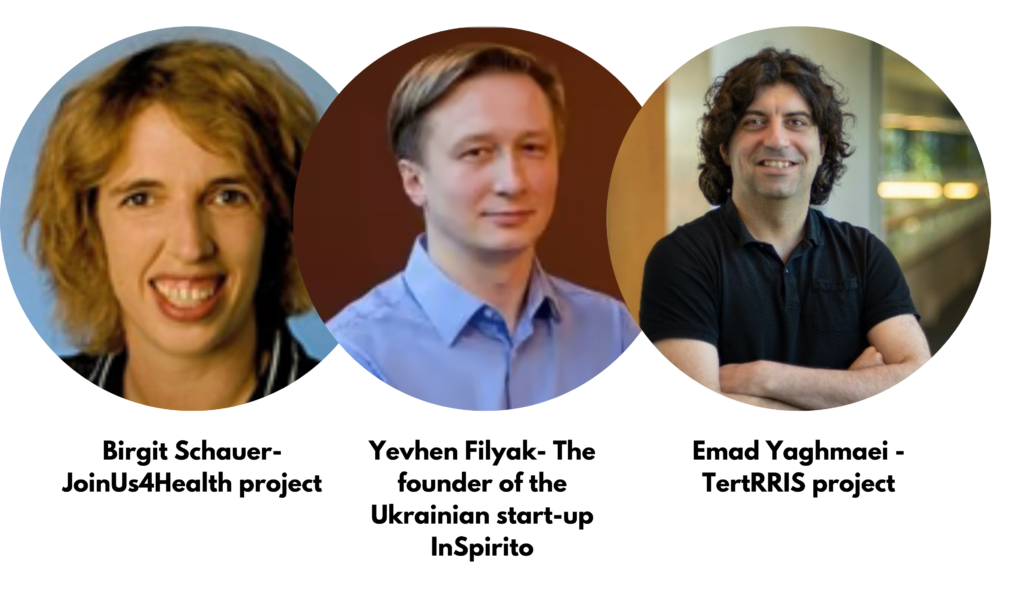
We also had the opportunity to hear from our ResBios partners from the University of Primorska, the University of Bremen, the Univerisity of Gdansk, the AgroBioInstitute, and the University of Rome Tor Vergata who have acted as mentors to our implementing partners throughout the ResBios project, and shared their experience in a round-table discussion on the Mutal Learning process.
After this period of self-reflection from the ResBios team, and a good catch-up with our friends and colleagues, the next day was the ResBios Final Conference:
Responsibility in Research & Innovation. Challenges for the Biosciences and Future Policies

We invited the Open Science and RRI community to join us at EURADA in Brussels to share some of the successes and lessons learned by the project, and to discuss the future landscape of responsibility research and how bioscience research will be at the cornerstone of how much of society will interact with research and innovation in the future.
This hybrid event was opened by our very own Carla Montesano, and Daniele Mezzana, project coordinators from the University of Rome- Tor Vergata, followed by a few words from Giacomo Frisanco representing our wonderful hosts from EURADA.
In the first session of the day- the focus was “Challenges in contemporary societies and the roles and responsibility of biosciences”. Chaired by Elena Buzan from the University of Primorska, we heard contributions from:
Mónica Bettencourt-Dias, from the EU-LIFE project, is an alliance of leading research centers in life sciences, advocating for excellent research in and for Europe, and how life science research can better align to respond to societal needs.
Vittorio Colizzi, University of Rome – Tor Vergata- spoke about how climate change will impact human health in the future, and how bioscience research will need to adapt to help deal with increasing numbers of zoonotic diseases.

Following this, the focus shifted to a discussion on a new “social contract” between R&I and society. Chaired by Evanthia Kalpazidou Schmidt, Aarhus University, this session was broken up into two sections, with the first part looking at the overview of the new climate bioscience research finds itself, and the need for more responsible practices.
First, we heard from Wiebe Bijker, Norwegian University of Science and Technology, Trondheim, and an advisor for the ResBios project. Wiebe Bijker spoke on how research needs to embrace a more responsible outlook, as well as introduced the new ResBios Manifesto for the Transformation of Science-Society Relations. Click here to read the full Manifesto.

The first part of this session also featured contributions from Luciano d’Andrea, Knowledge & Innovation Srls, Rome, on how research and innovation need to adapt and be flexible to meet the needs of society and the RRI framework. After a quick break, in the second portion of this section, the real-life experience of implementing RRI was shared. Featuring representatives from the ResBios implementing partners from the Institut de Ciències del Mar (Janire Salazar), Democritus University of Thrace (Aglaia Pappa), University of Zagreb (Toni Safner), Ivan Franko University of Lviv (Olena Stasyk).
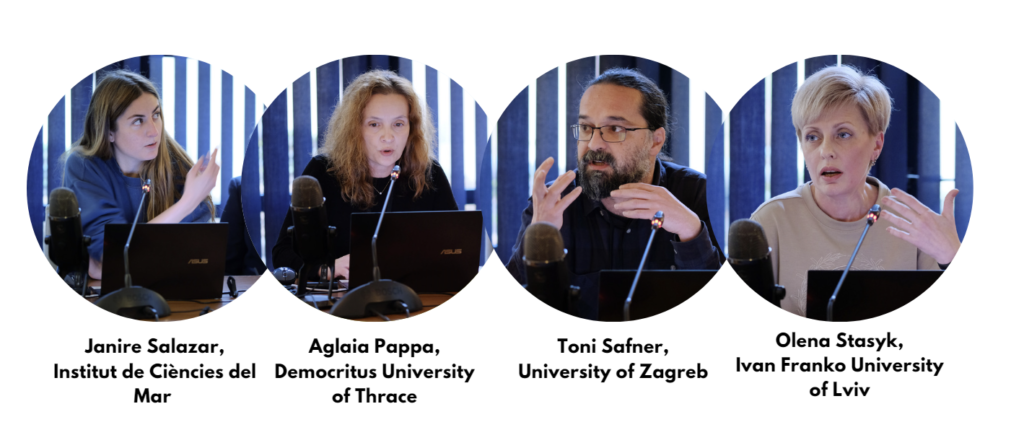
Each of these ResBios partners shared some of their experiences of implementing RRI practices within each of their institutions, in accordance with the project’s key grounding actions on; gender, open access, ethics, education, and public engagement.
Within this session, project coordinators from related EU projects were invited to share their approaches to instilling responsible practices in bioscience research. Featuring presentations from;
Roxane Bibard, SoScience- spoke about how to translate responsible science principles into action, with guidance for industries, research institutes, and policymakers.
Luka Duniš, The StepChange project – A project that uses citizen science approaches to engage communities about research that affects them, with initiatives that focus on Energy, Health, and the Environment.
Eleni Spyrakou, HYBRIDA – An initiative that focuses on new ethical implications in bioscience research and innovations, primarily in the use of organoid-based research and related technologies.
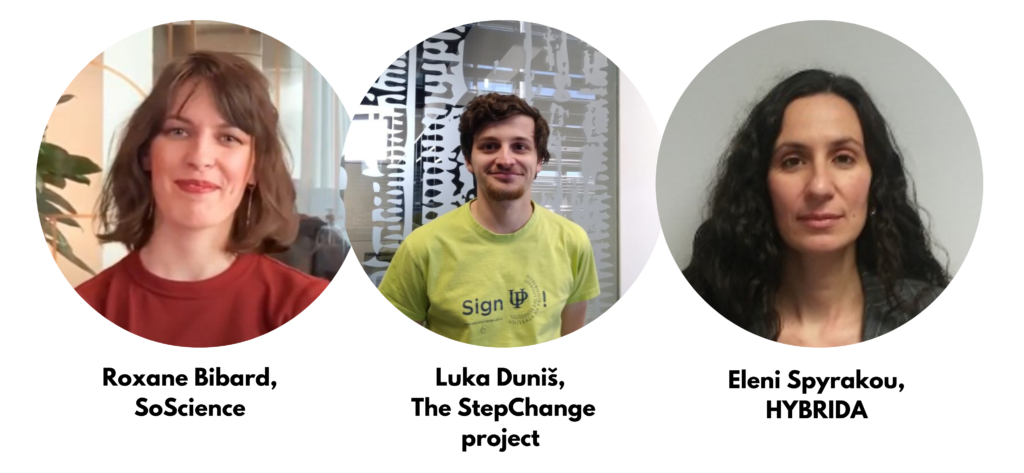
After a wonderful lunch, the conference participants were broken up into groups to discuss “Changing the course of science towards a more balanced and responsible relationship to society”, with each group focusing on a particular sector, which included:
– local-organizational contexts and their social/cultural environment, moderated by ResBios members: Doris Elster, University of Bremen, and Dimitar Djilianov, AgroBioInstitute;
– disciplinary-professional contexts, moderated by ResBios member: Elena Buzan, University of Primorska;
– global contexts, moderated by ResBios member, Krzysztof Bielawski, University of Gdansk.
In addition to these 3 in-person groups, online participants were asked to share their thoughts on these areas with ResBios members: Andrea Declich, K&I, and Laura Iacolina, University of Primorska.
This resulted in some very fruitful discussions and contributions on how these sectors can approach a more transparent and open relationship with society as a whole.
The last session of the day was a round table discussion on Policies: Support and Mainstreaming of “responsibility” in research & innovation.
Chaired by Fabio Feudo, Knowledge & Innovation Srls we were delighted to be joined by Georgios Papanagnou, European Commission, DG RTD, Ingeborg Meijer, Leiden University, and Stefan Philipp, Zentrum für Soziale Innovation, Vienna, for a very fruitful discussion on the need to mainstream “responsibility” in Research and Innovation through policy, and what the future of science policy may look like.

The conference concluded with our project coordinator Daniele Mezzana, who spoke about the launch of the new International Network for Responsible Biosciences. An online network that aims to build upon the success of the ResBios project and to create a community of researchers, project coordinators, science communicators, etc, interested in promoting responsible practice in biosciences, through mutual learning and knowledge sharing.
More information on the network can be found here:
Although the ResBios project is coming to an end, it is our hope that messages and the key outcomes achieved over these past few years will provide the scaffolding for continuous positive change and produce a more responsible mindset across research and innovation across the bioscience fields, and through the connection, we have made we can help ensure that RRI is at the forefront of bioscience research and not an afterthought. We hope to keep up this positive momentum and stay in contact with all the open science and bioscience communities.
Thank you all for your continued support.
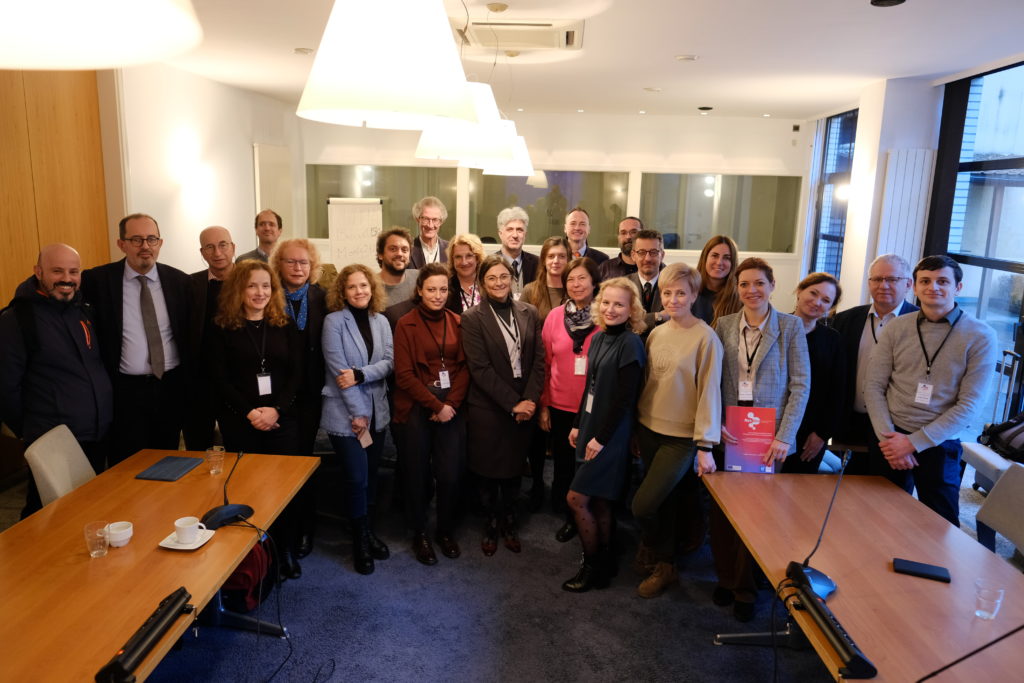
Photo Credit to Reimar Ott
